AESA PROGRAMMES
- Building R&D Infrastructure
- Developing Excellence in Leadership, Training and Science in Africa (DELTAS Africa)
- Human Heredity and Health in Africa (H3Africa)
- Africa’s Scientific Priorities (ASP)
- Innovation & Entrepreneurship
- Grand Challenges Africa
- Grand Challenges Innovation Network
- Rising Research Leaders/Post-Docs
- AESA RISE Postdoctoral Fellowship Programme
- African Postdoctoral Training Initiative (APTI)
- Climate Impact Research Capacity and Leadership Enhancement (CIRCLE)
- Climate Research for Development (CR4D)
- Future Leaders – African Independent Research (FLAIR)
- Critical Gaps In Science
- Clinical Trials Community (CTC)
- Community & Public Engagement
- Mobility Schemes: Africa-India Mobility Fund
- Mobility Schemes: Science and Language Mobility Scheme Africa
- Research Management Programme in Africa (ReMPro Africa)
- Science Communication/Africa Science Desk (ASD)
- Financial Governance: Global Grant Community (GGC)
- AAS Open Research
- CARI Programmes
- Evidence Leaders Africa (ELA)
All Fellows
AAS Fellows and Affiliates are distinguished researchers who represent the continent’s talent and promising men and women from across the globe.
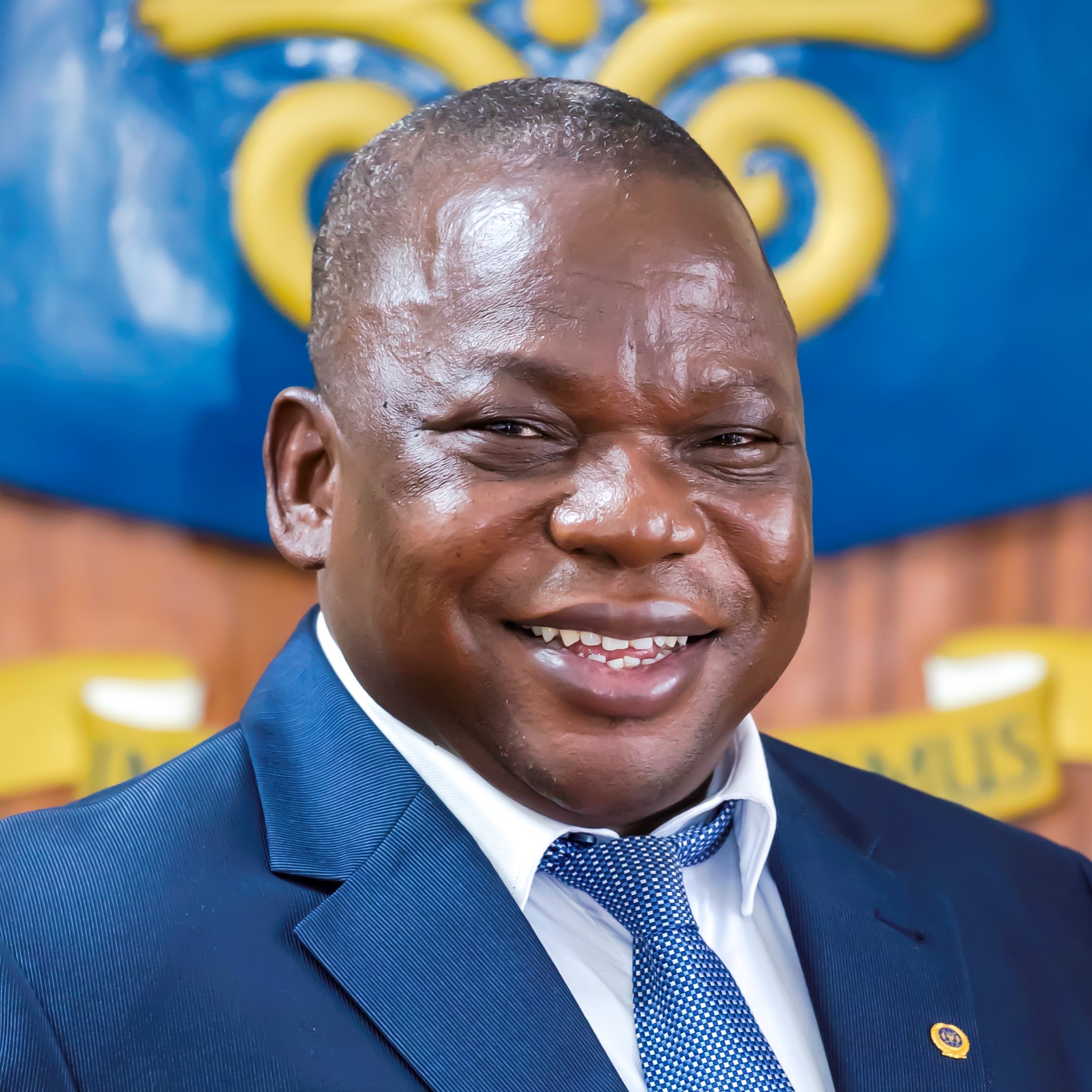
Medical & Health Sciences
Ghana
Julius Fobil is a Professor of environmental health with an outstanding academic career; having contributed significantly to the field of environmental epidemiology in Ghana and beyond. He has close to two hundred (>200) peer review publications in the field and has trained more 80 mentees at undergraduate through doctoral to postdoctoral levels. He is a fellow of the Collegium Ramazzini, an international academy of internationally renowned fellows in environmental and occupational health and a fellow of Ghana Academy of Arts and Sciences. He is the Provost of the University of Ghana’s College of Health Sciences; having previously served as Dean its School of Public Health, He also an Associate Scientist at the Bernhard Nocht Institute for Tropical Medicine in Hamburg. His research focuses on environmental exposure assessment, urban environmental health in low-income economies and more recently, he has been involved in research capacity building in environmental and occupational health in West and Central Africa region. He can be reached via email at: jfobil@ug.edu.gh.
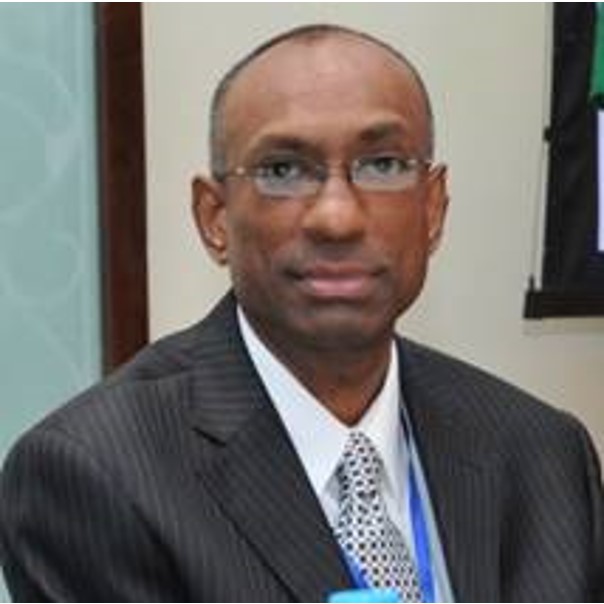
Chemical Sciences
Mauritius
Prof Ponnadurai Ramasami, CSci, CChem, FRSC, FAAS, FICCE, MMast, received his PhD in Physical Chemistry and became full Professor in 2013. He is a Visiting Professor with the University of Johannesburg and he is Professor Extraordinarius with the University of South Africa. He was awarded the best Mauritian Scientist in 2016. He also holds a UNESCO Chair in Computational Chemistry. He leads the Computational Chemistry Group, Department of Chemistry, Faculty of Science at the University of Mauritius. The research group focuses on the use of computational methods to solve chemistry and interdisciplinary problems. The group is particularly interested to collaborate with experimentalists and to use computational methods to complement experimental research. He has already published 265 research papers in peer-reviewed journals and he has edited several books published by Springer and De Gruyter. He organises several scientific events, training sessions and he is the chairman of the annual Virtual Conference on Chemistry and its Applications. He has participated in several international conferences as keynote/plenary speakers. Ha has also secured several research grants.
The url of the website of his research group is https://sites.uom.ac.mu/ccuom/
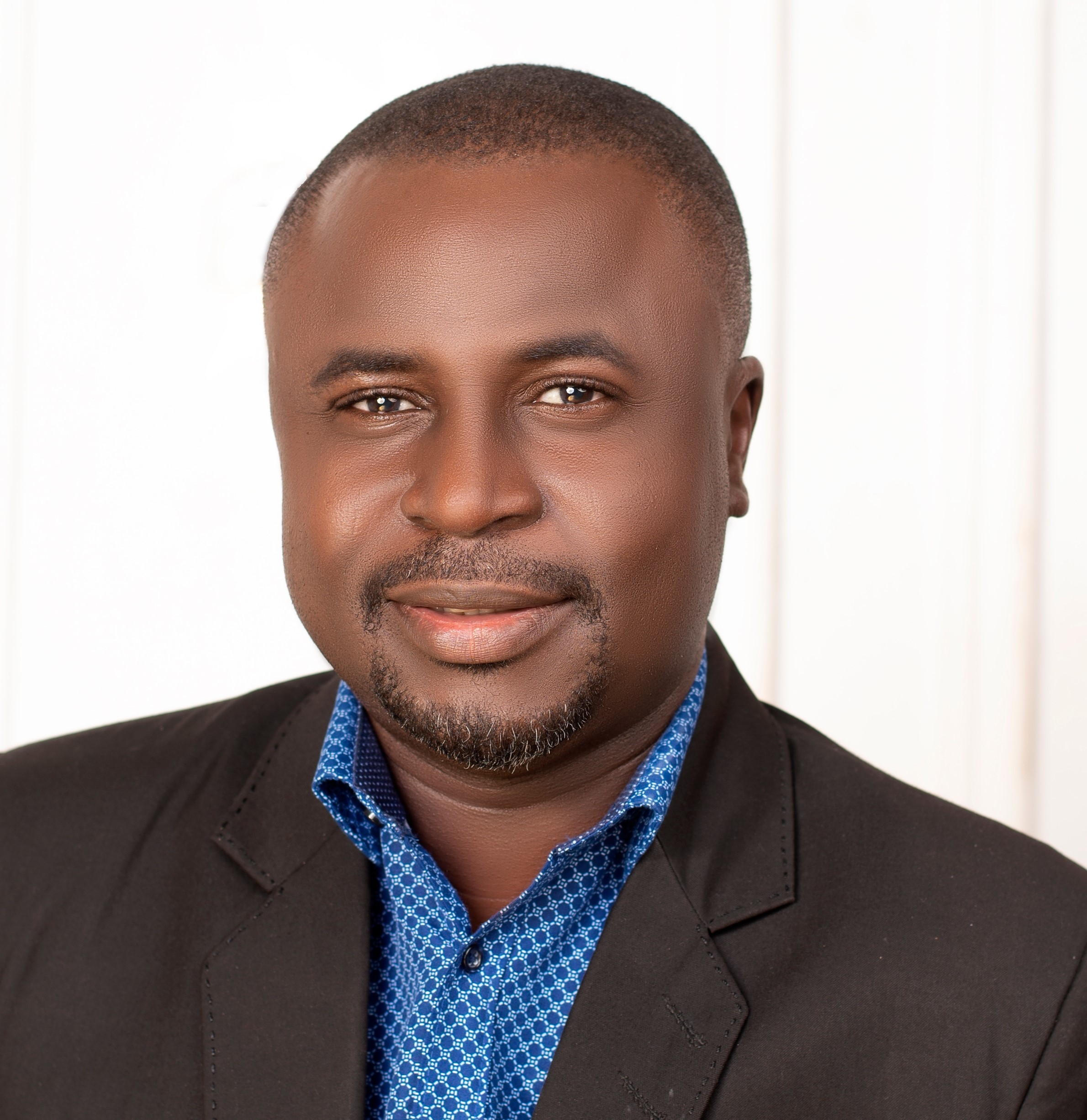
Biosciences
Nigeria
Dr. Etinosa O. Igbinosa is a professor of molecular microbiology, head of the Applied Microbial Processes & Environmental Health Research Group, and Director of General Studies at the University of Benin, Nigeria. He was a senior Alexander von Humboldt Fellow at the Max-Rubner Institut (MRI) Kiel, Germany, and German Federal Institute for Risk Assessment (BfR), Berlin Germany. In 2019, Dr. Igbinosa was awarded the Africa Oxford Visiting Fellowship Program (AfOx fellow) at the University of Oxford, United Kingdom. He is a grant holder and Principal Investigator (PI) to Alexander von Humboldt and Cambridge-Africa ALBORADA UK and a leading expert in pathogen biology and disease transmission. Dr. Etinosa Igbinosa was ranked among the World’s Top 2% Scientists in 2020 by Elsevier Scopus, clearly demonstrating his research impact on the global stage. He was recognized by the Professional Registers as a Chartered Biologist from the Royal Society of Biology, UK, in 2013, which recognized his impactful contribution to the development of biological sciences globally. Dr. Igbinosa’s excellent inputs and outputs in research, education, and engagement have directly contributed to the high standard at the University of Benin. As a passionate researcher, to date, he has published reputable top-notch scientific peer-journal articles with cumulative citations of 8693, an h-index of 48, and an i10-index of 116. In addition, he served as PI or co-PI for over 16 grants totaling ~USD 850,000. As a scientist and professor, Etinosa has investigated the molecular microbial ecology, bacterial evolution, molecular pathogenesis, and molecular drug resistance of bacteria. As a leader of a research group at the University of Benin, he has nurtured a vision to improve the environment and human health by linking molecular science to basic and applied knowledge in science and technology. He has successfully supervised 11-PhD and 38-MSc and >65 BSc (Hons) students. Thus, directly contributing to excellent education and learning, and capital development in Nigeria. Dr. Igbinosa's wider engagements have contributed to enhancing interdisciplinary collaborations and policy discourse among academics, technocrats, and practitioners, in connection with the Sustainable Development Goals (SDGs) on water and sanitation (SDG 6), good health and well-being (SDG 3), and quality education (SDG 4). Dr. Igbinosa is a member of several reputable scientific societies and a Fellow of the Africa Science Leadership Programme (ASLP) at the University of Pretoria South Africa and InterAcademy Partnership (IAP) Science Advice for Policy Fellowship (IAP-SAP Fellow). He is a consultant expert on foodborne antimicrobial resistance (AMR) to the Joint FAO/WHO Committee on food safety.
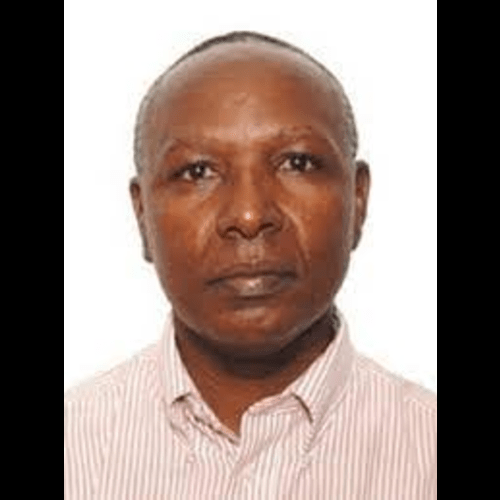
Biosciences
Kenya
Dr. Kariuki is a Senior Principal Research Scientist at the Kenya Medical Research Institute/Centre for Global Health Research (KEMRI/CGHR) and the Malaria Branch Chief of the KEMRI, CDC and Liverpool School of Tropical Medicine (LSTM) Collaborative Programme in Kisumu, Kenya. He has more than 30 years of hands-on experience in human health research focusing on the epidemiology and mechanisms of acquired immunity to infectious diseases, health systems research, clinical trials, entomology, disease surveillance, monitoring and evaluation and capacity strengthening. He is the recipient of several ongoing and completed multi-year research grants that addresses key areas of public health research . Dr. Kariuki has been involved in research that has influenced policy in malaria control -The use of Insectide-treated bednets for malaria control (Western Kenya bednet trial), use of low dose folic acid in pregnant women receiving sulfadoxine-pyrimethamine (SP) in malaria endemic areas, the recently WHO-recommended RTS,S malaria vaccine. He possesses strong scientific, leadership and management skills through development and review of proposals, implementation of research projects, data analysis/interpretation, mentoring and supervision of graduate students and staff at different levels, dissemination of research findings and preparation/review of manuscripts. Dr. Kariuki has established strong linkages and collaborations with biomedical scientists in Africa, Asia, Latin America, Europe and USA. In his current position as the Chief of the Malaria Branch, he oversees and provide scientific leadership and administrative support to more than 500 staff working in more than 20 research projects. He is the chair of the National Malaria Control Programme Operations Research Committee of Experts and has extensive experience in translation of research to policy. He is a reviewer of several international peer-reviewed journals including: The Lancet, Lancet Infectious Diseases, Malaria Journal, Antimicrobial Agents and Chemotherapy, Parasites and Vectors, Global Health Action and Journal of Public Health and Infection.
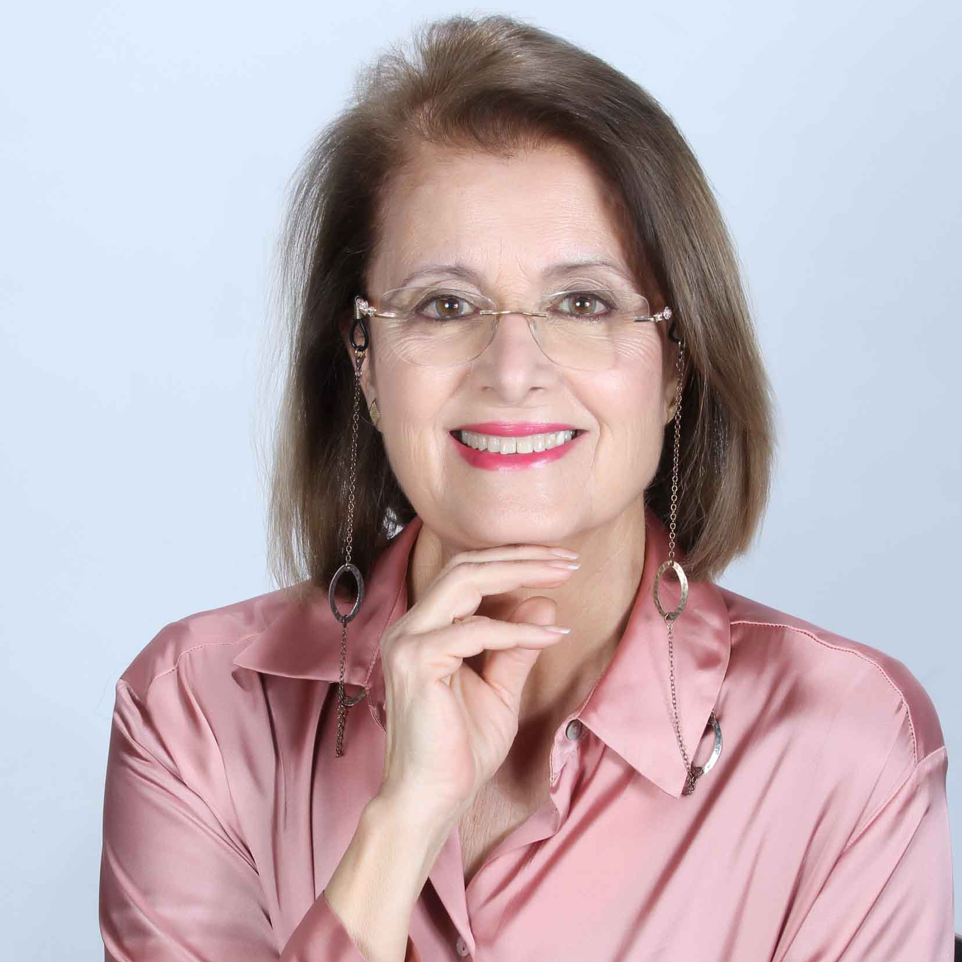
Medical & Health Sciences
Tunisia
Professor Habiba Bouhamed Chaabouni is emerita of medicine at the University of Tunis El Manar. She is fellow of ‘’French National Academy of Medicine’’ and fellow of ‘’ Tunisian Academy of Science and Arts’’, former director of science department, and laureate of the prestigious ‘’L'Oréal-UNESCO award’’ for Women in Science.
Physician and scientific researcher, Dr. Bouhamed is a pioneer in human genetics who faced the challenge of developing genetics in medical and health areas and succeeded to establish very early the national medical genetics board. Graduated in medicine and science, she put together her knowledge and skills for the benefice of students, patients and community. She aimed to demystify genetic and hereditary disorders, she founded and directed for many years the first specific clinical department in the region to offer adequate facilities to patients and families, (diagnosis, counseling, management as a first step to personalized medicine). As director of genetics department at the Tunis faculty of medicine, she developed program for undergraduate students and later a master degree in human genetics and PhD degree in health biology. Her research activities started on consanguinity risks of recessive disorders and complex diseases. Then she carried out several molecular studies focusing on common and rare genetic diseases and developed her expertise in chromosomal and molecular research. Director of laboratory research in human genetics, she empowered local scientific research and established an international collaboration leading to the identification of novel genes, mutations, chromosomal abnormalities and disorders. Elected as member of the first Mediterranean Science Team-MEDNIGHT-August 2021. Member of the five experts’ committee to implement the Montpellier Advanced Knowledge Institute on Transitions (MAK’IT). Member of the Arab Network of Women in Science. She received several awards for her groundbreaking achievements and contributions to scientific progress in Tunisia, Africa, Arab World and Mediterranean region.
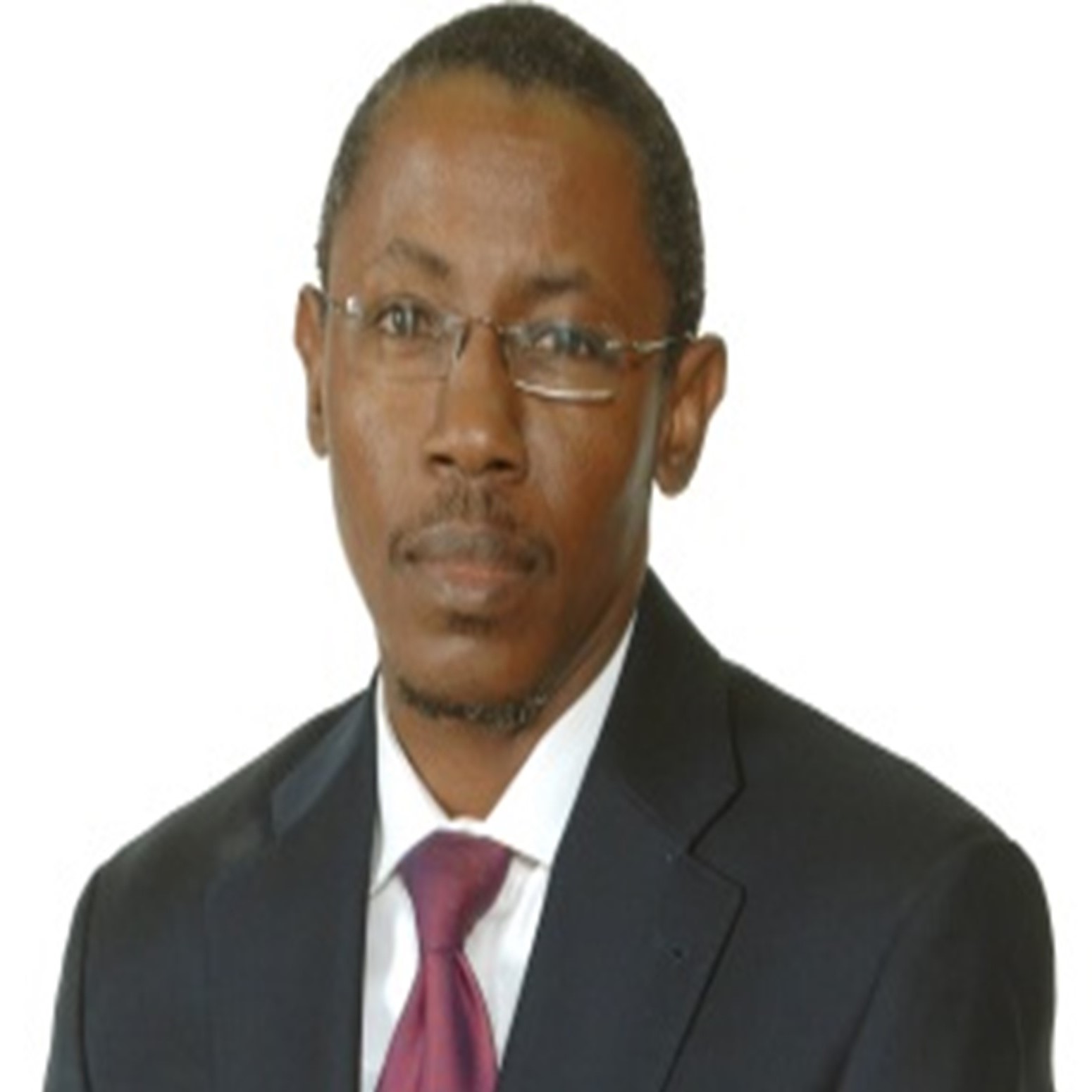
Chemical Sciences
South Africa
Prof Ebenso obtained his PhD in Physical Chemistry from the University of Calabar, Nigeria and has been lecturing in the university system since 1990. He started his university teaching career at the University of Calabar, Nigeria. He was the Acting Vice Rector (Research and Planning) and the Executive Dean of the Faculty of Natural and Agricultural Sciences at the entire North-West University in South Africa – Dec 31st 2019. He then took up appointment as Research Professor at the University of South Africa (Ist Feb 2021 till date).
His research interest span through physical chemistry (electrochemistry, kinetics, adsorption, thermodynamics of corrosion - and using some quantum chemical methods like density functional theory (DFT) and other semi-empirical methods to study corrosion inhibition efficiencies of compounds; extensive quantitative structure activity relationship studies (QSAR); Molecular dynamics/ Monte Carlo Simulation studies. He has also published papers on electrochemical sensors for detection of neurotransmitters and thermodynamics of solutions.
He is a member of many learned and professional societies namely Chemical Society of Nigeria (MCSN)., American Chemical Society (MACS)., NACE, International Corrosion Society, International Society of Electrochemistry, South African Chemical Institute (M.S.A. Chem. I.), South African Council for Natural Scientific Professions (SACNASP) (Pri. Sci. Nat), Fellow, Royal Society of Chemistry, UK (FRSC) and member of Academy of Science of South Africa (ASSAf).
He currently has an H-Index of 78 and over 20000 total citations from the Scopus Search Engine of Elsevier Science. According to the Elsevier SciVal Insights Report (2010-2015), he has a citation impact 10% above world average; Ebenso recently appeared in the top 10 list of prominent South African nanotechnology researchers/authors over a 20-year period (2000–2019), according to the South African Institute of Physics. He is also listed among the top 2% most-cited scientists in the world, according to Stanford University, together with the publishing house Elsevier and SciTech Strategies.

Biosciences
South Africa
Melodie A. McGeoch was born in Gauteng, South Africa. She obtained her B.Sc degree in Botany and Entomology, and B.Sc (Hons) in Entomology, from the University of KwaZulu-Natal. In 1995 she was awarded a PhD in Entomology from the University of Pretoria. She has held academic positions at the Universities of Pretoria, Stellenbosch and Monash. She is currently Professor in Ecology at La Trobe University (Australia). Over her career to date Prof. McGeoch has held positions as Editor of African Entomology, Head of the Cape Research Centre (South African National Parks), and Director of Masters in Environment and Sustainability (Monash University). She currently serves as 1st Vice Chair of the Science Committee of the Global Biodiversity Information Facility (GBIF) and sits on the Board of the National Computational Infrastructure (ANU).
Prof. McGeoch’s research activities fall into three main areas: (1) Developing methods to improve the estimation, modeling and monitoring of biodiversity. This research has led to developments in the theory and application of indicators for biodiversity policy and management, including for example Essential Biodiversity Variables. She has led the development of novel, information-rich methods to model biodiversity change. (2) A key research focus has been the development of the theory of species distributions. Specifically, modelling the fundamental properties of species distributions using occurrence data, by examining the relationships between scale, range, population aggregation and abundance. (3) More recently she has worked on approaches to improve the quality, quantity, accessibility and usefulness of data on biological invasions. This was driven by the need for improved quality of information on invasive species. Along with an international team of partners, her research contributed to the delivery of the Global Register of Introduced and Invasive Species – the Register provides open access checklists of invasive alien species for all countries.
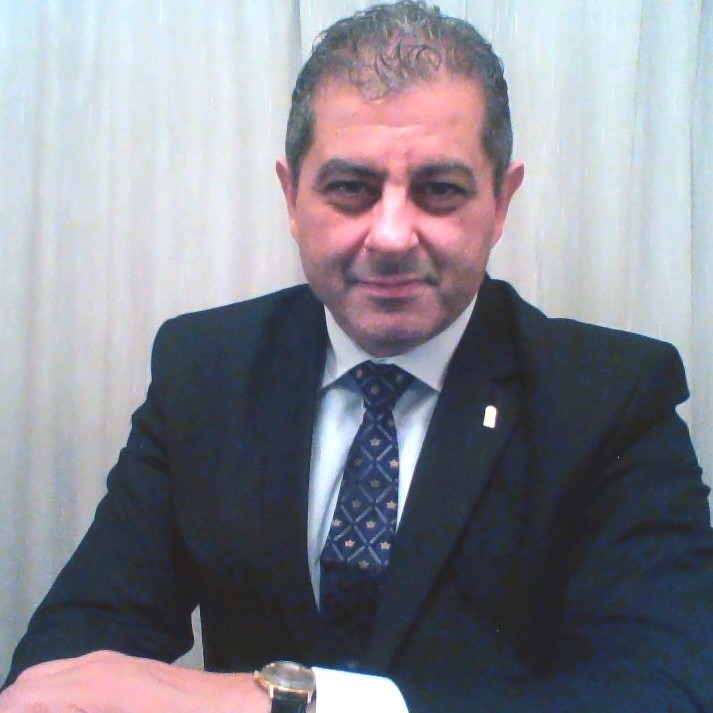
Professor Cherif Farid Matta
Egypt
|Elected: 2021
Theoretical and computational chemistry Theoretical biophysics
View Profile
Theoretical and computational chemistry Theoretical biophysics
Egypt
CURRENT POSITIONS (2022-2023)
Chérif F. Matta, B.Pharm.Sci., Dipl., PhD, HDR, FRSA, FRSB, FInstP, FRSC, FAAS, FAAAS is Professor and Chair of the Department of Chemistry and Physics at Mount Saint Vincent University (Canada). He holds honorary or visiting professorships at Université Laval, Dalhousie University, and Saint Mary’s University (all in Canada) and at Zewail City for Science and Technology (Egypt).
CURRENT RESEARCH (2022-2023)
The research group of Professor Matta is focused on theoretical and computational chemistry and in mitochondrial biophysics. Matta is known for work on the Quantum Theory of Atoms in Molecules (QTAIM) and in theoretical biophysics. He co-discovered of a new form of chemical bonding termed “hydrogen-hydrogen bond” and originated the concept of electron localization-delocalization matrices (LDMs) and their applications in materials and drug design. Prof. Matta’s work on the effects of electromagnetic fields on chemical bonding and reactivity may be considered foundational. He has also contributed to the promotion of the emerging field of Quantum Crystallography. Chérif Matta and colleagues discovered novel biochemical roles of the mitochondrial enzyme ATP synthase related to its intrinsic electric field in modulating and controlling biochemical energy transduction.
DISSEMINATION & RECOGNITION
Professor Matta’s counts ca. 180 publications including 4 books. He has given around 250 lectures at conferences and in universities and research centers in more than 30 countries.
Prof. Matta has received the “Excellence Initiative” Distinguished Visiting Professorship by the Minister of Science and Higher Education of Poland (2022), the Award for Research Excellence from Mount Saint Vincent University (2017), and the designation as Lady Davis Fellow (2016). Prof. Matta received the NSERC-Acfas “prevue par l’image” Prize for 2016, the Molecular Graphics and Molecular Simulation Society MGMS Silver Jubilee Prize for 2009, and the John C. Polanyi Prize in Chemistry for 2004. In 2021 he was named the Science Atlantic Notable Scientist Speaker of the Year. In 2022, he was invited to provide an expert witness testimonial in front of the Canadian House of Commons’ Standing Committee on Science and Research studies (SRSR).
Prof. Matta is Fellow of the African Academy of Sciences (elected in 2021), Fellow of the American Association for the Advancement of Science (elected in 2021), Fellow of the Royal Society of Chemistry (elected in 2010), Fellow of the Institute of Physics (elected in 2016), Fellow of the Royal Society of Biology (elected in 2019), and Fellow of the Royal Society of Arts (elected in 2018).
Matta has received funding from the Natural research and Engineering of Canada (NSERC), Canada Foundation for Innovation (CFI), The (Egyptian) Academy of Scientific Research and Technology (ASRT), The Killam Trusts, The Lady Davis Trust, and The Visegrad Fund.
SCHOLARLY SERVICE
Professor Matta serves in a number of capacities on committees of provincial, federal, and international research funding agencies. He has been a member of a number of committees of the Natural and Engineering Research Council of Canada (NSERC), of Compute Canada, and of the African Academy of Sciences. After being a member for four years, Prof. Matta served as Chair/Head of the Interdisciplinary Adjudication Committee of the Canada Research Chairs (CRC) programme of the Tri-Council of Canada (2021-2022).
Currently, he is serving as a member of the Multidisciplinary Selection Board of the Canada Excellence Research Chairs (CERC) competition of the Tri-Council of Canada and a member of the Multidisciplinary Committee “Microbiology/Virology” of the Fonds de recherche du Québec – Nature et technologies (FRQNT).
Chérif Matta is also the Director (2021-2024) of Accreditation and Member of the Board of Directors of the Canadian Society for Chemistry. He is serving a second elected term as a member of the Commission for Quantum Crystallography of the International Union of Crystallography (IUCr) (2017-2024). Matta is an Associate Editor of Foundations of Chemistry (Springer) since 2021.
SOME KEY RESEARCH PUBLICATIONS
- Matta, C. F.; Huang, L.; Massa, L. (2023). Quantum Crystallography, De Gruyter (250 pages) (Link).
- Vigneau, J.-N.; Fahimi, P., Ebert, M.; Cheng, Y.; Tannahill, C.; Muir, P.; Nguyen-Dang, T.-T. Matta, C. F. (2022). “ATP synthase: A moonlighting enzyme with unprecedented functions”, Chemical Communications (ChemComm) 58, 2650-2653. (Link)
- Smith, F.; Majaess, D.; Harriott, T. A.; Massa, L.; Matta, C. F. (2021) “Establishing new diffuse interstellar band correlations to identify common carriers”; Monthly Notices of the Royal Astronomical Society (MNRAS) 507, 5236–5245. (Link)
- Matta, C. F. (2014). "Modeling biophysical and biological properties from the characteristics of the molecular electron density, electron localization and delocalization Matrices, and the electrostatic potential"; Journal of Computational Chemistry 35, 1165-1198. (Link).
- Sowlati-Hashjin, S.; Matta, C. F. (2013) "The chemical bond in external electric fields. energies, geometries, and vibrational Stark shifts in diatomic molecules"; Journal of Chemical Physics 139, 144101. (Link).
- Matta, C. F.; Hernández-Trujillo, J.; Tang, T.-H.; and Bader, R. F. W. (2003). “Hydrogen-hydrogen bonding: a stabilizing interaction in molecules and crystals”, Chemistry - A European Journal 9, 1940-1951. (Link).
Please also visit: https://www.cmatta.ca/.
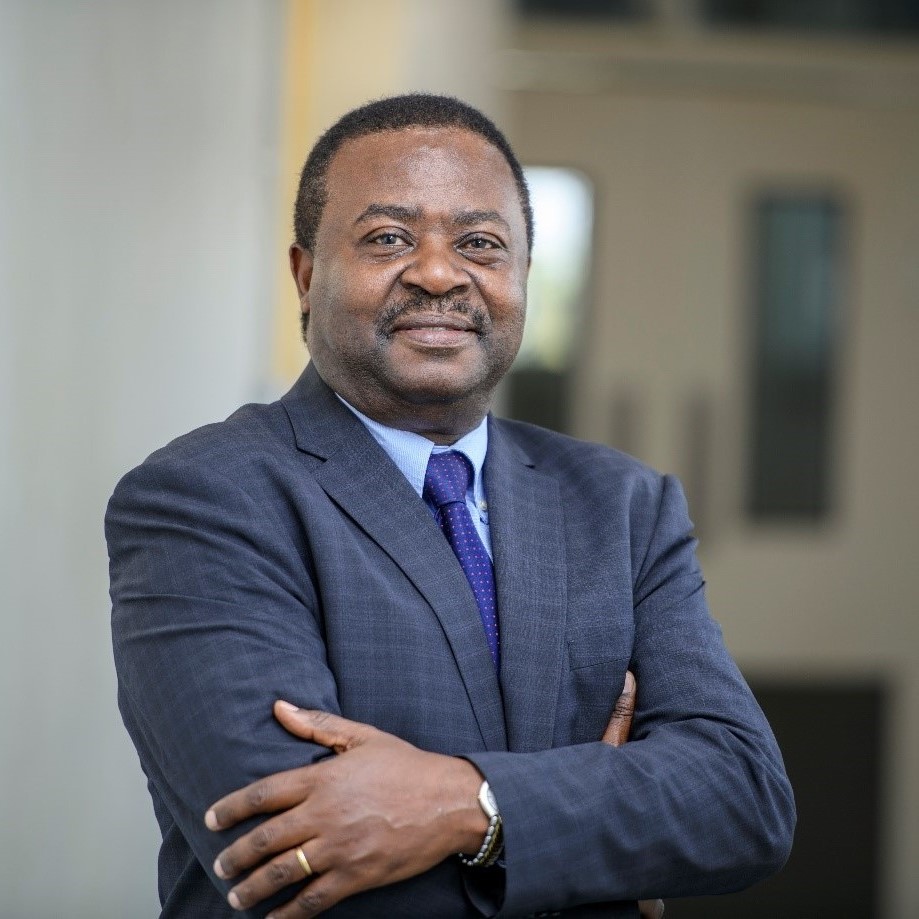
Medical & Health Sciences
Uganda
Prof. Pontiano Kaleebu is Director of the Uganda Virus Research Institute (UVRI) and Director of the MRC/UVRI and London School of Hygiene and Tropical Medicine (LSHTM), Uganda Research Unit. He is a professor of immunovirology at the LSHTM.
He holds a medical degree from Makerere University, a diploma in immunology and a PhD from University of London.
He is a Fellow of Royal College of Physicians-Edinburgh, a Fellow of Imperial College London, Faculty of Medicine, a Fellow of the Academy of Medical Sciences of United Kingdom and a Fellow of the Uganda National Academy of Sciences.
He has co-authored more than 350 publications in peer reviewed scientific journals and book chapters. His main research interests are vaccine research including understanding protective immune responses, viral diversity and resistance to antiretroviral drugs.
He co-founded the UVRI-IAVI HIV Vaccine Program a partnership with IAVI that has contributed to HIV vaccine research. He chaired the African AIDS Vaccine Programme (AAVP) under WHO for many years.
He is a member of the Ministry of Health COVID-19 Scientific Advisory Committee, the COVID-19 Vaccine Access Committee and chairs the SARS-CoV-2/COVID-19 Laboratory Testing and Quality Assurance Committee. In addition, he chairs the Ministry of Health Technical Working Group on HIV drug resistance and sits of the ART subcommittee.
He sits on a number of other National and International committees including those for WHO, Africa CDC, EDCTP and USA NIH among others. He is a member of the EDCTP General Assembly, representing Uganda and is overall coordinator of the EDCTP East African Network of Excellence, EACCR.
He has won many International research grants and trained many scientists. In addition, he has won many national and international awards including recently in 2020, Recognition of Excellence in the fight against COVID-19 and other viruses-by the Ministry of Science Technology and Innovation.
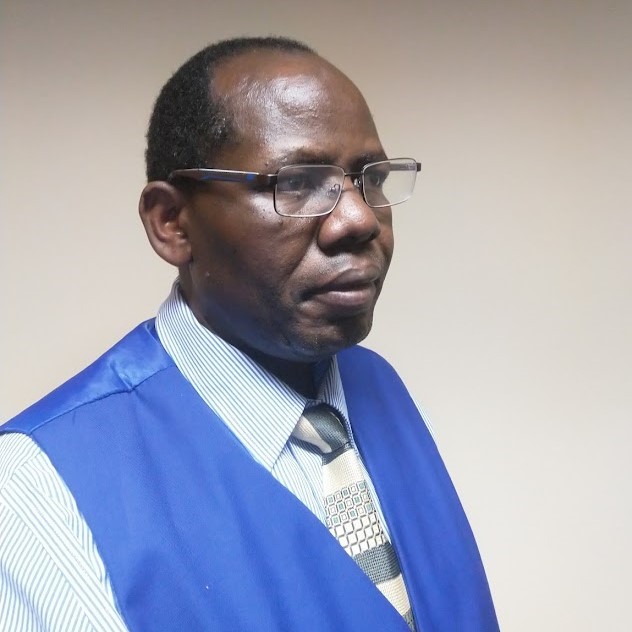
Nicholas Mbaya Odhiambo
Kenya
|Elected: 2021
Cultural Sciences, Humanities & Social Sciences
View Profile
Cultural Sciences, Humanities & Social Sciences
Kenya
Prof Nicholas M. Odhiambo holds a PhD (Economics) degree from the University of Stellenbosch. His research profile is broad, rich and multifaceted. His research has made a significant contribution to the scholarly body of knowledge. In the past 22 years, he has published a number of papers in various international journals. Of these publications, more than 330 articles have been published in more than 140 reputable/peer-reviewed/refereed journals. Prof Odhiambo is currently ranked among the top economics authors in the world by IDEAS/RePEc, the largest bibliographic database dedicated to Economics (hosted by the Research Division of the Federal Reserve Bank of St. Louis, USA). According to RePEc/IDEAS (August 2022), he is ranked number two in South Africa and number three in Africa based on a number of criteria. He is also the second most-cited economics author in Africa, based on the number of Citations, Weighted by the Number of Authors. Internationally, Prof Odhiambo is currently ranked number 31 worldwide by RePEc/IDEAS (as of November 2022) based on the Number of Works. His Google Scholar h-index and i10-index are currently 48 and 164, respectively with total citations of 10110; while his Scopus h-Index, based on 260 publications, is 30 (November 2022). Prof Odhiambo, who is also a fellow of the Royal Statistical Society, is currently serving as Associate Editor: Journal of African Development. He is also a member of International Advisory Board/Editorial Board Member of seven internationally recognised journals. He has also served as Guest Editor for Energy Exploration & Exploitation; Journal of Policy Research in Tourism, Leisure and Events; Telecommunications Policy; and African Journal of Economic and Management Sciences (AJEMS). Prof Odhiambo is currently serving as Professor of Economics and Head of Macroeconomic Policy Analysis research programme at the University of South Africa (UNISA) – a programme which he developed in 2012.
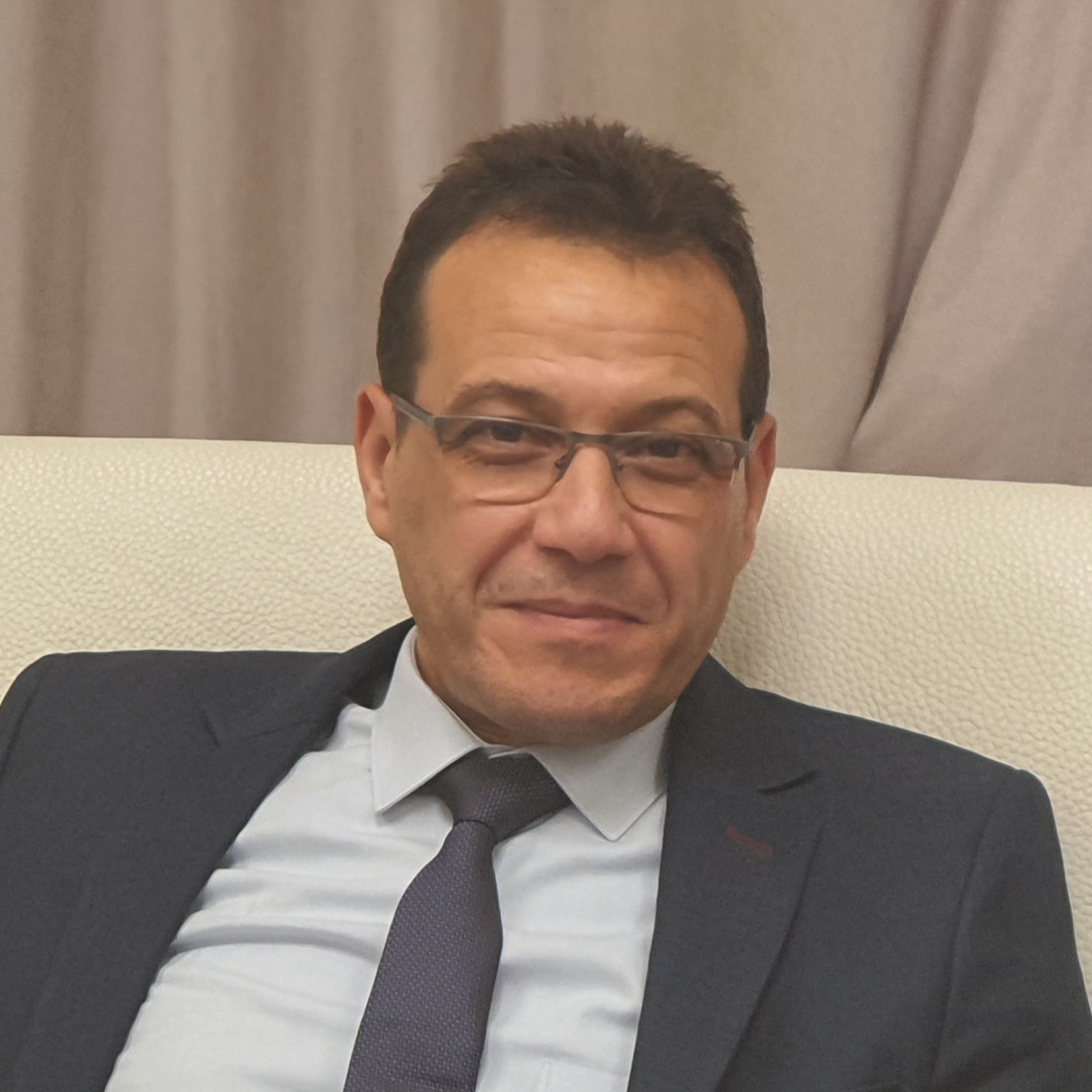
Biosciences
Algeria
Mohamed Hichem KARA is a teacher and researcher at the University of Annaba in Algeria. Holder of a PhD in biological oceanography from the University of Science and Technology Houari Boumediène of Algiers in 1998, his scientific activities are oriented towards marine and continental hydrobiology with a particular interest for biodiversity, fishing, aquaculture and their interactions with human activities (pollution, invasive species and global warming). In 2003, he founded the Marine Bioressources laboratory. In 2007 and 2010, he respectively initiated a Master's degree and a Doctorate in coastal environment and aquatic bioresources. His team has participated in 15 international research programs (Tassili, PHC Maghreb, AUF, CNRS-PICS, EU-FP7, US-AID, Envi-Med, Amidex, Key initiative Muse, COST). He is the author of a hundred of scientific articles (Scopus h index = 16), 5 books and 2 book chapters.
Mohamed Hichem Kara is an expert with international institutions (AUF, FAO, UNEP/MAP, IUCN, EU) and has contributed to the establishment of thematic networks at national, Maghreb and international level. He is also involved in the design of international strategies for marine management and policy.
In 2015, Mohamed Hichem Kara is admitted as a founding member of the Algerian Academy of Science and Technology (AAST) of which he is currently the Vice-President. He is co-chairman of the Living Resources and Marine Ecosystems Committee of the CIESM (Mediterranean Scientific Commission) and recently joined the Pan-African Council for Scientific Research as a member.
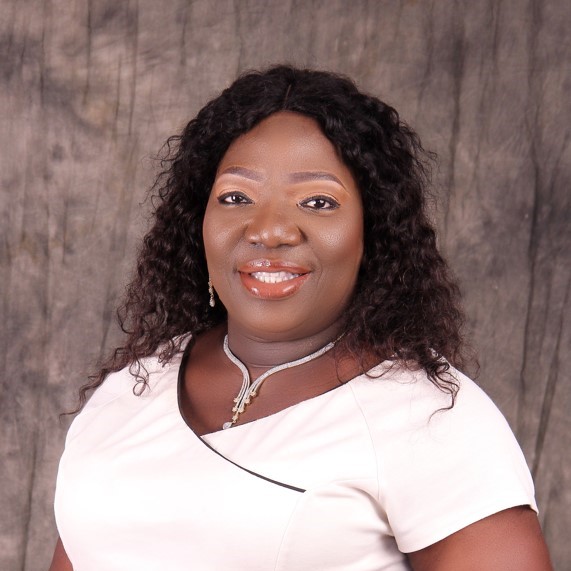
Prof Olubukola Babalola
South Africa
|Elected: 2021
Agricultural & Nutritional Sciences
View Profile
Agricultural & Nutritional Sciences
South Africa
Professor Olubukola Oluranti Babalola (Pr.Sci.Nat, MASSAF, FASLP, FTWAS, FAS, FAAS), the Vice President of the Organization for Women in Science for the Developing World (OWSD), is an NRF-rated scientist with over 20 years of research experience focusing on rhizosphere metagenomics, coupled with an MBA in General Management. She is the Research Director of the Food Security & Safety Focus Area at North-West University (NWU), South Africa, without reservation leading, as the Head and Principal Investigator a Microbial Biotechnology Research laboratory. Olubukola is a member of the editorial board for Microbiology Spectrum, Applied and Environmental Microbiology (American Society for Microbiology, USA), BMC Microbiology (Elsevier), and Biochemistry and Biophysics Reports (Elsevier). She is an International Advisor to F1000Research Plant Science Gateway, Nano-Horizon and Heliyon (Cell Press). Olubukola has received many awards, including being the finalist, GenderInSite 2020. Olubukola joined NWU in 2009; at NWU, Olubukola is passionate about capacity building and has graduated 28 doctoral fellows, 24 masters, and numerous Honors students. Several of her PhD products are now in the UK, Italy, America, Canada, Australia, Sweden, and also scattered over Africa. Prof Babalola is a prolific author with over 300 publications. She is an AAAS-TWAS Science diplomacy alumnus, impacting the world after the eye-opening awareness of policymaking, diplomacy, and diplomatic engagement. She is acting using the gender lens and forging collaborations with diplomats. She is a fellow of The Nigerian Academy of Science (NAS), The World Academy of Sciences (TWAS), and the Academy of Science of South Africa (ASSAF). Her wealth of international experience spans the Americas, Asia, Europe, and Oceania, 38 countries to be precise. She enjoys international collaborations across the globe, research grants, and many awards. Olubukola has an H-index of 50, with ~13,000 citations Olubukola is #1 in Africa for Soil Science and Plant Nutrition (https://www.adscientificindex.com/scientist.php?id=96341

Medical & Health Sciences
South Africa
Duncan Steele is the Deputy Director and Strategic Lead for enteric vaccines in the Enteric and Diarrheal Diseases team of the Bill & Melinda Gates Foundation. He is responsible for an integrated portfolio of vaccine research and development and for implementation strategies for the control of diarrhea and enteric fever in vulnerable populations in endemic countries. He coordinates teams across Vaccine Development and Vaccine Delivery for improved and new vaccines against rotavirus, cholera, typhoid fever, Shigella spp. and Hepatitis E virus.
Before starting at the foundation in October 2011, Dr. Steele was at PATH, a global health non-profit organization, where he worked across multiple diarrhea vaccine-related programs, including the Gavi-funded Rotavirus Vaccine Program focused on disease burden and clinical trials in Africa and Asia; and in vaccine development for new alternative rotavirus vaccines; and for vaccines against ETEC and Shigella. Previously, as a scientist at the Initiative for Vaccine Research, Department of Immunization, Vaccines and Biologicals, World Health Organization, Steele was responsible for the diarrheal disease vaccines portfolio, where he coordinated a global strategic agenda for vaccine research for the major diarrheal and enteric diseases.
Dr. Steele is a South African trained microbiologist with extensive experience in virology and microbiology, especially for diarrheal diseases, and was based at MEDUNSA, now Sefako Makgatho Health Sciences University where he has kept a relationship, continuing to mentor postgraduate students. In 1996, he established the world recognized South African MRC-funded Diarrheal Pathogens Research Unit which pioneered rotavirus research on the continent and developed collaborations with African researchers which continues today. His students and mentees are scattered across the African continent, many leading their own research groups. Steele is the author of more than 325 scientific publications on diarrheal diseases, epidemiology, clinical research and vaccine development.
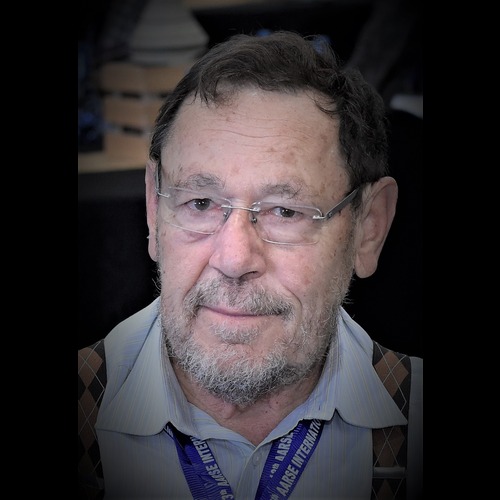
HAROLD JOHN ANNEGARN
South Africa
|Elected: 2021
Geological, Environmental, Earth & Space Sciences
View Profile
Geological, Environmental, Earth & Space Sciences
South Africa
Extraordinary Professor, School of Geo and Spatial Sciences, North West University, Potchefstroom, South Africa; Honorary Associate Professor, China Agricultural University, Beijing; Fellow of the Academy of Science of South Africa
Harold Annegarn is a polymath who has contributed to fundamental and applied sciences across a wide range of scientific disciplines. From his doctoral thesis in nuclear physics, he branched out to become a specialist in atmospheric chemistry, the health effects of air pollution and energy efficiency. Annegarn has published in diverse fields - atmospheric science, climatology, remote sensing, geology, mining, science diplomacy, botany and even an oft-cited paper on the avian biology of vultures. He has risen to international prominence in several fields, having hosted international projects and organised major conferences in nuclear physics, atmospheric sciences, energy and remote sensing.
The true contribution of Annegarn to African and global science has been in his mentoring of graduate students, 28 doctoral and 59 Masters in all. Following South Africa’s political transition in 1994, he deliberately recruited students to address historical inequalities within South Africa and to accept students from elsewhere in Africa, 13 countries all together. Annegarn inducted students into the global scientific community through his research collaborations with the United States, Europe, China and Australia. Annegarn recognised satellite remote sensing as a vital new technology for environmental stewardship and African development, and a field that could provide opportunities for African participation in globally significant science. In addition to academic mentorship, Annegarn provided full financial support for African students and post-doctoral fellows from research grants and earned income. In many case, mentorship continued beyond graduation, to assist students in launching their careers. Many of his graduates have achieved prominence in their home countries or internationally in academia, government and industry.
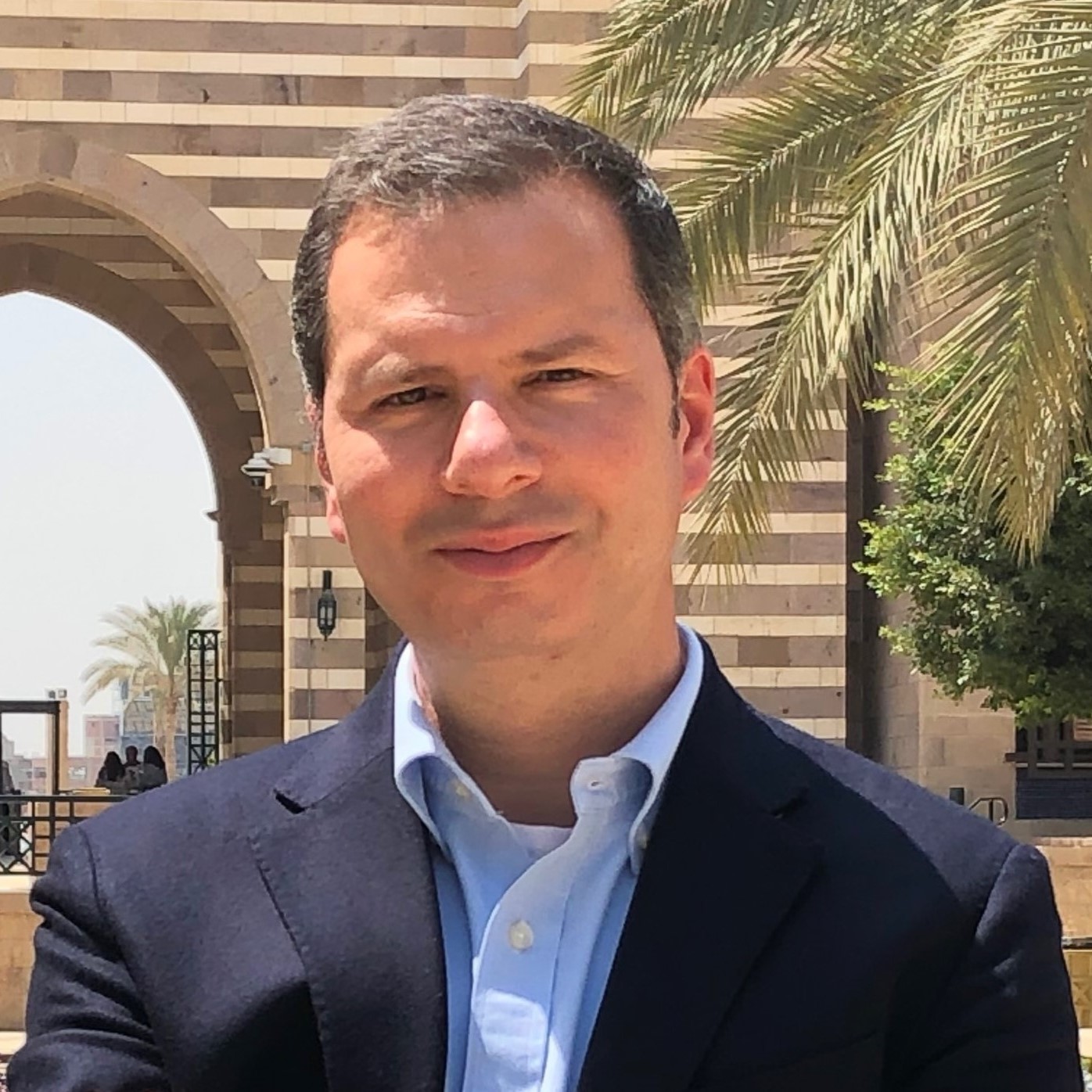
Biosciences
Egypt
Dr. Ahmed Moustafa graduated with a B.Sc. in computer science from Alexandria University. Then he earned his Ph.D. in computational genetics from the University of Iowa. After that, Dr. Moustafa conducted his postdoctoral fellowship at the J. Craig Venter Institute (JCVI). Afterward, he joined the American University in Cairo (AUC) as a bioinformatics faculty member in the Department of Biology. Then, Dr. Moustafa served as the director of the Biotechnology Graduate Program. Currently, he is serving as the chair of the Biology Department at AUC. In addition, Dr. Moustafa is affiliated with JCVI as an adjunct scientist. He is also the head of the bioinformatics department at the Egypt Center for Research and Regenerative Medicine (ECRRM). More recently, Dr. Moustafa was elected to the national Egyptian Genome Project (EGP) scientific committee. Dr. Moustafa’s work spans environmental microbial genomics to human genomics and the microbiome, employing machine learning and genome analytics to elucidate functional characteristics of our genetic blueprints and our surrounding organisms. Dr. Moustafa has published more than fifty articles in prominent scientific journals. In addition, Dr. Moustafa contributed to developing open-source bioinformatics tools and methodologies, as well as training materials and courses. Besides scientific research, his other passion is teaching young researchers and providing education in bioinformatics and genome data science.
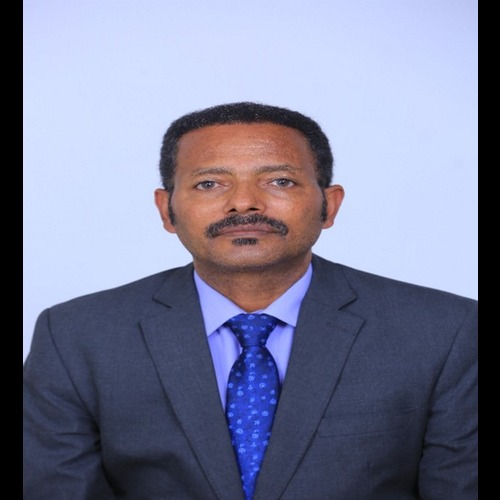
Agricultural & Nutritional Sciences
Ethiopia
Dr Tadele Tefera is currently Country Head of ICIPE (International Centre of Insect Physiology and Ecology), Ethiopia. He is an entomologist, obtained his PhD from Stellenbosch University, MSc and BSc from Haramaya University. He was Humboldt fellow at University of Göttingen, Germany. He mentored over 30 MSc and PhD students, authored over 100 publications and has a patent right in biopesticide. Dr Tefera was Associate Professor and Director of Research at Haramaya University. Dr Tefera was listed in The World’s Top 2% scientists released by Stanford University in 2021, scientists whose published papers have accelerated progress in their respective fields and influenced the productivity of other scientists. Dr Tefera served in international scientific bodies including Governing Board Member of The International Association for Plant Protection Sciences; editor-in-chief of the East African Journal of Sciences and Associate Editor of Indian Journal of Entomology. Dr Tefera made considerable contributions in the development of postharvest management technologies and crop specific IPM techniques for major crops. Dr Tefera worked as a scientist at CIMMYT (International Maize and Wheat Improvement Center), he was a team member of CIMMYT maize breeders who released 8 high yielding, drought tolerant, pest resistant maize inbred lines and hybrids, in collaboration with and national maize program in east Africa, from 2010-2013. Under the leadership of Dr Tefera ICIPE Ethiopia received an award of excellence given in 2018 by the State Minster, Ministry of Agriculture, Ethiopia, for outstanding partnership and contributions in promotion of climate smart push-pull technology and contributions in commercial beekeeping development in Ethiopia. His team was awarded best team of the year 2017 by ICIPE Director General for strong leadership and outstanding efforts in expanding ICIPE’s programs in Ethiopia and beyond. Dr Tefera was awarded a fellowship by the Ethiopian Academy of Sciences in 2022 for his outstanding achievements.
Medical & Health Sciences
Nigeria
Martins Emeje obtained BPharm with distinction from Ahmadu Bello University, MPharm and Ph.D. from University of Nigeria, where he received the best PhD award and was enlisted as UNN’s “Face of Research.” He established the first nanomedicine center in Nigeria. He was the pioneer head of the intellectual property and technology transfer as well as the technology innovation and support center. Prof. Emeje’s several international fellowships include the prestigious Raman fellowship. He has over 150 primary scientific publications, patents, trademarks, and public opinions in print and electronic media. He has a postgraduate certificate in Project Management from Walden University, Minnesota, as well as a professional teaching certificate and a World Bank certification in Public Procurement.
He is an examiner to universities in Ghana, India and Nigeria. He was an adjunct lecturer at University of Uyo for nine (9) years, during which he developed the postgraduate curriculum for the department of Pharmaceutics. He currently supervises postgraduate students in Universities in Nigeria and abroad. Emeje was Head, NIPCO during which the first indigenous phytomedicine was licensed to a pharmaceutical company.
Emeje is a recipient of several grants including the American Cancer Society grant for the development of Oral morphine solution; $11.6M grant for development of drugs for malaria, tuberculosis and diabetes as well as a 2022 Royal Society grant. His work on herbal formulations resulted in three major registered products in the market. His work in the application of nanotechnology in drug delivery won WHO/ANDI innovation award.
Prof. Emeje was a national chairman of academic pharmacists in Nigeria, a member of WHO Expert Committee, a consultant to WHO on MSMEs and the 2021 winner of the May & Baker Nigeria Plc–sponsored prize for professional service in research and innovation. Prof. Emeje was recently named as the Vice-Chancellor, European University of Nigeria.

Medical & Health Sciences
Nigeria
Abiodun Falodun,PhD is a renowned Professor of Medicinal and Natural Product Chemistry in the University of Benin and one of the foremost experts in anticancer natural product drug discovery with over 120 scientific papers.
He is a recipient of the prestigious Senior Fulbright Scholar Award (2013), (ICCBS-2008); visiting scholar to University of Rostock, Germany in 2011 & 2012, Deutsche Forschungsgemeinschaft (DFG), Visiting scholar to the South China Botanical Gardens (CAS, 2009) and the PSE grant award (2008).
He isolated the first chemical principle from an indigenous medicinal plant used for the management of threatened abortion, which earned him the May and Baker Professional Innovative Award (2007).
His grantsmanship accomplishments have been demonstrated by winning internal and external competitive research grants. He was PI for the $30,000.00 medicinal plant project, (2011-2015) funded by the USAID, in collaboration with the University of Mississippi, USA.
His group won a research grant to conduct research on the Identification and Development of Potential Drug from Nigerian Medicinal Plants against COVID-19 (NRF/SETI/HSW/00796, N45,244,000.00) funded by the National Research Fund.
He is the Head of the Natural Product Research Group, and has a google scholar citation of
https://scholar.google.com/citations?user=WSXal3gAAAAJ&hl=en&authuser=1
He was the Deputy Vice Chancellor (Academic) University of Benin and member of the University Governing Council (2014-2016); Rector, Edo State Polytechnic (2018-2023), and a fellow of the Institute of Safety Professionals of Nigeria among others.
He is the EIC, Tropical Journal of Natural Product Research. His academic deliverables include supervision of M.Sc and Ph.D students; external examiner to several universities in Nigeria, and a consultant to PAX Herbal Clinic Research laboratory.
Prof. Falodun is an alumnus of Harvard University, and a certified Public Leader from Harvard Kennedy School of Government, Harvard University, Boston, Massachusetts, USA.
He is married to Dr.(Mrs.) JE Falodun and they are blessed with children.
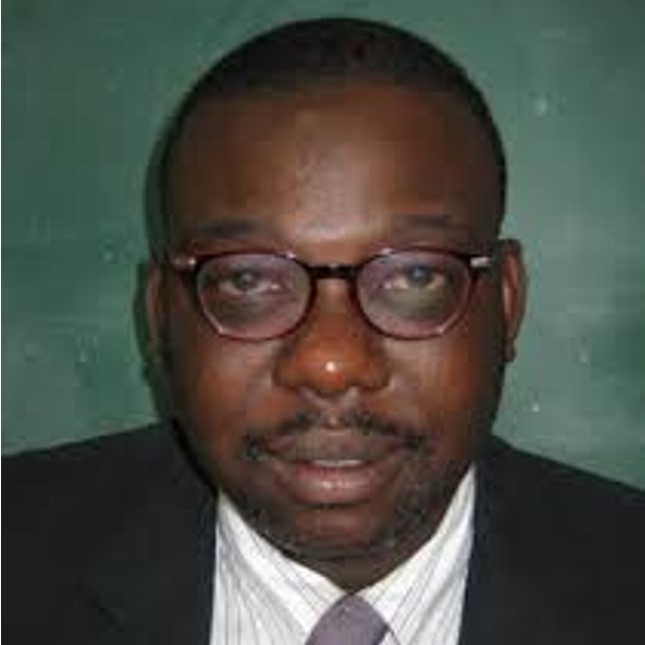
Biosciences
Nigeria
Prof. Ganiyu Oboh hails from Ibie-Nafe, Edo-State, Nigeria. He holds PhD in Applied Biochemistry (2002) from the Federal University of Technology, Akure, Nigeria, and has enjoyed postdoctoral trainings from laboratories in Brazil, Germany and China. He joined the service of the Department of Biochemistry, Federal University of Technology, Akure, Nigeria in 1997 as a Graduate Assistant, from where he rose to the position of a Professor in 2012. He has served in different administrative capacities including Head of Biochemistry Department, Sub-Dean, School of Postgraduate Studies and Director, Centre for Research and Development of the university.
Prof Oboh’s research works of developing functional food products have become focal points in the search for complementary/alternative therapies for the management of several diseases; this has attracted lots of collaborators and research grants within and outside Nigeria. He presently has nine (9) patents and three (3) products in the market. He has published over 500 research articles in refereed journals both locally and internationally, as well as several published conferences proceedings and book chapters. Some of his academic web-metric rankings currently shows he has an h-index of 63 and 15,615 citations in Google Scholar and h-index of 46 and 8,745 citations in Scopus. Furthermore, Prof Oboh was ranked among the top 2% Scientist in the World, top 10 in Nigeria and No.1 Food Scientist in Nigeria in the ranking released by Standford University, USA. In the aspect of human capacity development, he has trained several graduate students including over eighty masters (80) and thirty- two (32) Ph. D graduates. He is presently the National President/ Convener, Pharma-Foods Congress, an annual event of Functional Foods and Nutraceuticals Association of Nigeria. He was an Associate of Abdus Salam-ICTP, Alexander von Humboldt scholar and a fellow of the Nigerian Academy of Sciences.
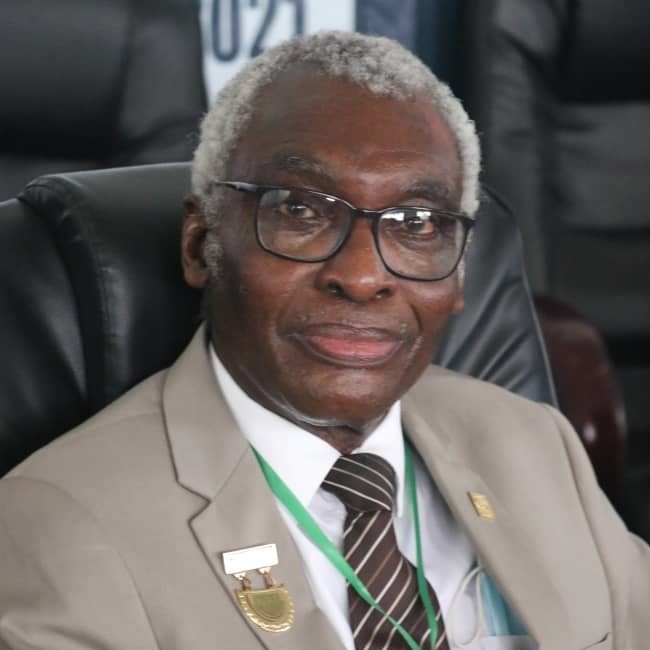
Professor Ogugua Charles Aworh
Nigeria
|Elected: 2021
Agricultural & Nutritional Sciences
View Profile
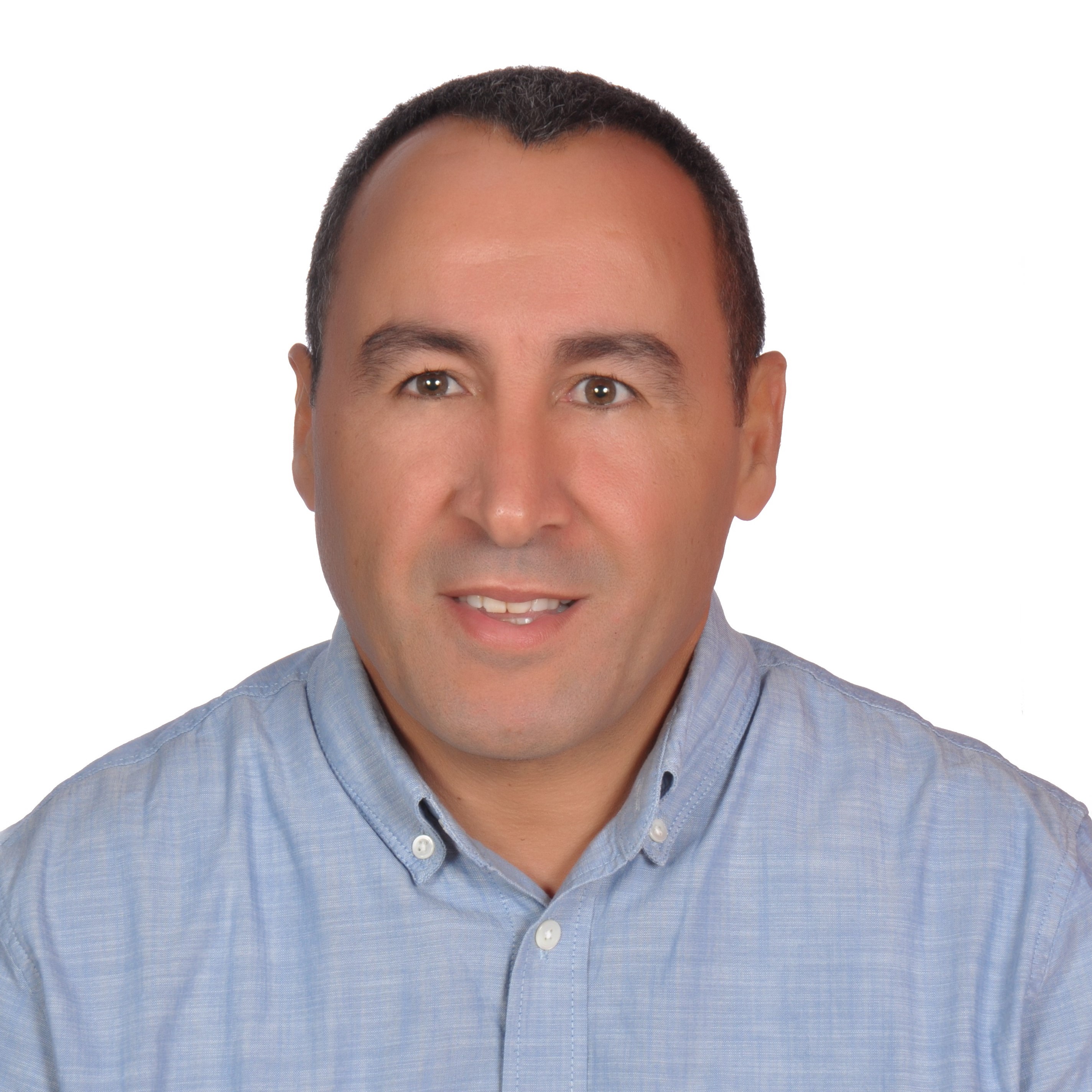
Physical Sciences
Morocco
Tayalati started his career as an experimental high-energy physicist with a Ph.D. from the University Mohammed First in Morocco. He pursued the field in the ANTARES collaboration. He have been involved in the early preparation and deployment of the ANTARES neutrino telescope and was for many years the convener of the exotic physics group. ANTARES has allowed to reach very competitive limits on the flux of Magnetic Monopoles and Nuclearites particles in the Universe.
Yahya spent more than twenty years of his career with the ATLAS collaboration, covering many topics ranging from hardware projects and detector operations to software development and physics analysis. Yahya’s first important contribution is highlighted through his role in several steps of the construction, commissioning, and operation of the ATLAS Liquid Argon Presampler, This detector has proven to be very efficient and it is now widely used in all ATLAS physics measurements. Furthermore, He was also involved in several physics analyses, where the most recent achievement consists of the first observation of Light-by-light scattering. The observation by the ATLAS experiment of this extremely rare process provides an interesting way to probe physics beyond the standard model.
Yahya started recently a collaboration with the new KM3NeT neutrino telescope, a large research infrastructure, in construction in the Mediterranean sea. A productions line of optical modules for KM3NeT is successfully operating in Morocco. In addition, Yahya has initiated the participation of Morocco in the High Granularity Timing Detector, a new system part of the ATLAS upgrade. The proposed project is at the front-line of experimental particle physics.
Yahya is an honorary fellow of the Islamic World Academy of Sciences and has been awarded in 2021 the prestigious Mustafa Prize for all his contributions to researches in physics as well as promoting scientific development in Morocco and beyond.

Cultural Sciences, Humanities & Social Sciences
Ethiopia
Menale Kassie is a Principal Scientist and Head of the Social Sciences and Impact Assessment Unit at the International Centre of Insect Physiology and Ecology. Before joining icipe, Menale worked for the International Maize and Wheat Improvement Centre (CIMMYT), the International Crop Research Institute for the Semi-Arid Tropics (ICRISAT), the University of Gothenburg, Sweden, and for a government organization in Ethiopia. Dr. Menale Kassie holds a Ph.D. in Development and Resource Economics from the School of Economics and Business, Norwegian University of Life Sciences, Norway. He has 16 years of research experience with sound knowledge in impact assessment, project development and management experience, and leadership.
Menale Kassie has published 88 articles in scholarly journals in impact assessment, one heath economics, and gender analysis. He has received numerous awards and recognitions, including:-
-
The World Academy of Sciences (TWAS) Siwei Cheng Award in Economic Sciences (2020).
-
Listed in the world's top 2% of Scientists List created by Sandford University (2021).
-
Ranked among the top 5% of authors in the field of Economics in IDEAS, the largest bibliographic database dedicated to the discipline.
-
Appointed as a Specialty Chief Editor of the Insect Economics section of the Frontiers in Insect Science Journal (2020).
-
Elected as an Associate Fellow to the Ethiopian Academy of Sciences (2020).
-
Received the icipe outstanding professional staff award (2019).
-
Research Committee Member of the Environment for Development (EfD) initiative at the University of Gothenburg, Sweden, (2018–2022)
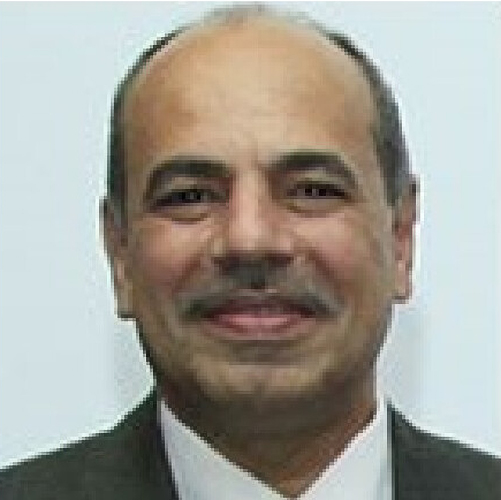
Medical & Health Sciences
Egypt
Osama Badary is currently the Vice Dean, Faculty of Pharmacy, British University in Egypt (BUE). Chairman of NODCAR, 2013-2019. Head of Clinical Pharmacy Department at Ain Shams University 2006-2013. Publications of over 100 original articles, book chapters and more than100 Master and Ph.D. supervisions. Chairman of the Egyptian Clinical Pharmacy Fellowship Board. Vice President of the Arab Academy for Development of Pharmaceutical Skills. Selected among the top 2% of world Scientists list published by Stanford University 2020 and 2021. Fellow of the AvH, DAAD, UICC and AACR. Winner of Yamagiwa-Yoshida (YY) prize 1999, Shoman Prize 2000 and Egypt National State Merit Prize 2017. Member of task Force AMA and AU Model Law, and WHO QMS and Bench Marking teams. Member of the African TWGPRR NEPAD Technical Committee.
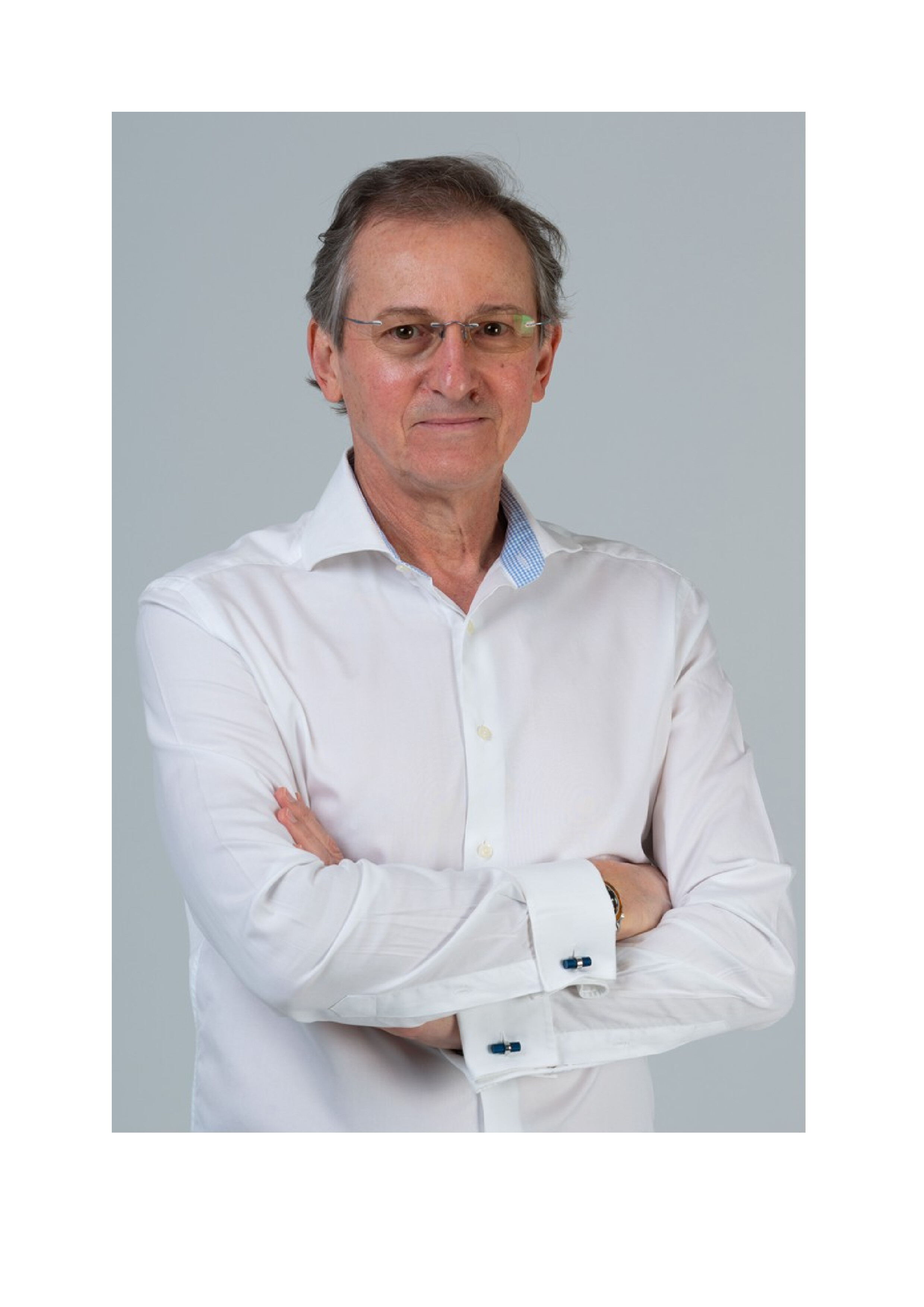
Physical Sciences
South Africa
Francesco Petruccione studied Physics at the University of Freiburg i. Br. and received his PhD in 1988 and the “Habilitation” degree (Dr. rer. nat. habil.) in 1994. In 2004 he was appointed Professor of Theoretical Physics at the University of KwaZulu-Natal (UKZN), in Durban (South Africa). In 2007 he was granted the South African Research Chair for Quantum Information Processing and Communication. At present, he is the interim Director of the National Institute for Theoretical and Computational Sciences, Pro Vice-Chancellor Big Data and Informatics of UKZN, and Professor Extraordinary at the Department of Physics of the Stellenbosch University..Prof Petruccione is an elected member of the Academy of Sciences of South Africa, a Fellow of the Royal Society of South Africa and a Fellow of the University of KwaZulu-Natal. He has published about 250 papers in refereed scientific journals. He is the co-author of a monograph on “The Theory of Open Quantum Systems " (more than 9000 citations according to Google Scholar), that was published in 2002, reprinted as paperback in 2007, and translated in Russian. In 2018 he published a monograph (with Maria Schuld) on "Supervised Learning with Quantum Computers” that was already translated into Japanese. The second extended edition was published in 2021 under the title “Machine Learning with Quantum Computers”.He is the editor of several proceedings volumes and of special editions of scientific journals. Prof Petruccione is a member of the Editorial Board of the journals "Open Systems and Information Dynamics", "Scientific Reports", "Quantum Machine Intelligence”.
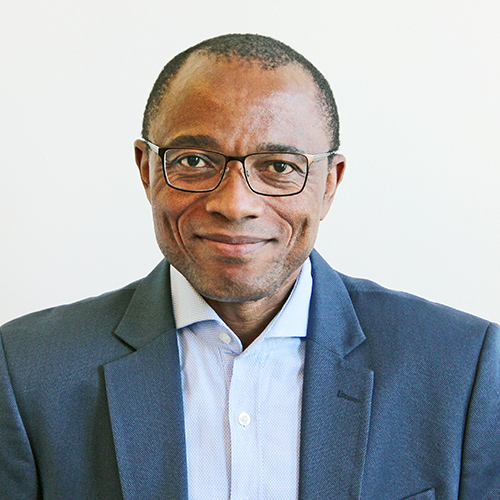
Medical & Health Sciences
South Africa
Prof Andre Pascal Kengne is a scientist and medical doctor with a speciality in internal medicine. He received his basic and specialist training from the School of Medicine of Yaounde 1 university in Cameroon. He then completed a PhD in Medicine with major concentration on cardiovascular epidemiology and prevention, from the School of Medicine and George Institute for Global Health at the University of Sydney, in Australia in 2009. He joined the South African Medical Research Council (SAMRC) in 2011 as the first Director of its Collaborative Research Programme on CVD and Metabolic Diseases, and was promoted in 2013 to lead the newly established and consolidated NCD Research Unit of the organization. He holds conjoint appointments as Professor at the Department of the Department of Medicine of the University of Cape Town, and Extraordinary Professor at the Department of Global Health of the Stellenbosch University, South Africa.
He is a senior fellow of the George Institute for Global Health (Australia), and the Julius Center for Health Sciences and Primary Care (Holland). His areas of research include chronic diseases epidemiology and prevention in developing countries, decision making in diabetes and cardiovascular diseases. He is the developer of the ADVANCE risk model to estimate cardiovascular disease risk in people with diabetes, and pioneer of task-shifting as an approach to improve access to prevention and control of non-communicable disease (NCD) in resource-constrained setting. He is co-author of over 550 peer-reviewed articles, many book chapters and monographs; and board member of several journals, including the leading International Journal of Epidemiology. He is member of several professional bodies, and leading expert groups, and has received several distinctions as a researcher, the most recent being the the Sir Alberti Award for Excellent in research on diabetes in Africa, awarded in 2017.
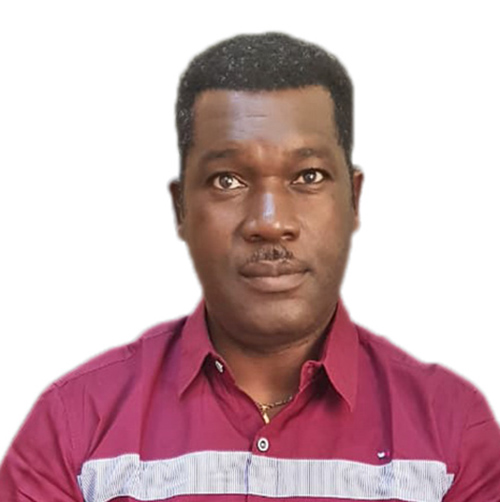
Biosciences
Burkina Faso
Diabate Abdoulaye is a vector ecologist. He owned a PhD degree from the University of Montpellier, France and spent 4 years as a postdoc fellow at NIH in the US. His research activities proceed along with two different but complementary directions. First, it involves insecticide resistance and its management and second, it is focused on population biology, ecological studies on phenotypic variation within and between populations of mosquitoes and analyses of its genetic and environmental sources. He is particularly interested in mosquito male biology and related transgenic and sterile male’s approaches to control vector diseases. He has been an invited speaker in several prestigious universities including the Harvard University and has given inspirational talks at the Grand Challenges annual conference in London 2016 and in Addis Ababa 2019. He is the recipient of the Royal Society Pfizer award in 2013, the PAMCA life achievement Award in 2019 and the AAAS Newcomb Cleveland Prize in February 2020. He was awarded the Grand Challenges Star in global Health grant, the MRC/DFID African Leader Scheme grant and recently the prestigious Wellcome Trust Collaborative Award in Science. Currently he is the group lead of the Vector Biology Department at IRSS, Bobo Dioulasso, Burkina Faso, the country lead of the project Target Malaria and the Director of the World Bank and the AAU funded center of excellence on vector borne diseases ITECH-MTV
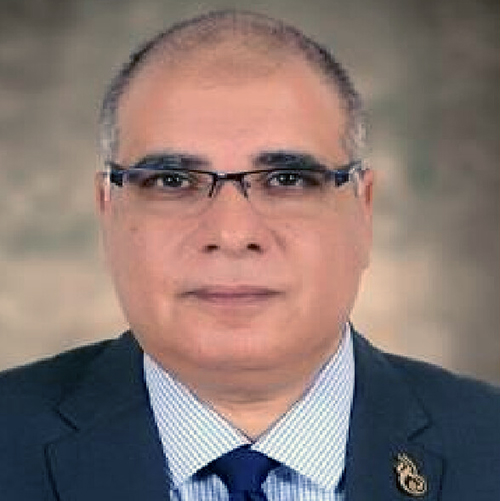
Mathematical Sciences
Egypt
Prof. Mekheimer born in Egypt 1963, received a B.Sc. in Mathematics from Ain Shams University Cairo (1984), M.Sc. in Thermo-Elasticity from Al-Azhar University (1990), completed his doctorate in Bio-fluid Mechanics at Al-Azhar University in (1994). Currently, he is a professor of Applied Mathematics and Vice Dean of Research and Post-graduate Studies at the Faculty of Science (Men), Al-Azhar University, Egypt. He is leading an active group in his field of interest "Bio-Fluids". The roles played by Prof. Mekheimer, have many facets: In the scientific research part he has embarked on some fundamental aspects of the peristaltic transport of physiological fluids, blood flow in stenotic arteries, and atherosclerosis catheterization. Many of his student's research earned the prize of the best M. Sc Thesis. & Ph D. Thesis from the Egyptian Mathematical Society (2008, 2012, 2013,2019, 2020). He is Advisory Board Member of the International Islamic Institute for Population Studies and Research, Al-Azhar University 2020, Editor-in-Chief of Al-Azhar Bulletin of Sciences Journal, and Associated Editor of International Journals (Journal of the Egyptian Mathematical Society (JOEMS), SN Applied Sciences, Frontiers in Mathematical and Statistical Physics).
Due to the high quality, high competitivity, and importance of the research of Prof. Mekheimer he has been highly cited (3647) and H-index (33) Scopus Citation Overview: https://www.scopus.com/authid/detail.uri?authorId=6602385344. Consequently, he has earned one of the State highest prizes namely the State Awards of Excellence Prize of Basic Science awarded by the ASRT (Academy of Scientific Research and Technology ) of Egypt 2018, besides other certificates from the Egyptian Mathematical Society (2008, 2012, 2013,2019, 2020) as well as other prizes from Taif University Saudi Arabia, namely the citation prize for Engineering and Basic Science branch 2012, 2013, and 2014 and OBADA-PRIZE for distinguished researcher 2020-by Natural Science Publishing cooperation. Also, the Order of the Republic-First Class Medal ” Science & Arts” from the Egyptian State 2019. Recently Prof Mekheimer was induced in the “Top 2% of world scientists” list published by Stanford University U.S.A., according to the updated science-wide author databases of standardized citation indicator, 2020 & 2021
Medical & Health Sciences
Kenya
Walter Jaoko is a physician, a professor of medical microbiology and tropical medicine and the Director of KAVI-Institute of Clinical Research, at the University of Nairobi. He is also an Extraordinary Professor of Medicine at Stellenbosch University’s Centre for Bioethics and Law in the Department of Medicine, and Adjunct Professor, School of Public Health, University of Alabama at Birmingham.
He holds a Bachelors’ degree in medicine from University of Nairobi, a Masters’ degree in Tropical Medicine from Liverpool School of Tropical Medicine and Hygiene, a PhD in Medical Microbiology from University of Nairobi.
He has conducted clinical research in infectious diseases transmission, treatment and control. In this regard, he has published over 200 articles in peer-reviewed scientific journals. His areas of interest has been in understanding the risk factors for HIV transmission, HIV superinfection, preventive HIV vaccine research and development, among others. Currently, his research focuses on the use of monoclonal antibodies for prevention of HIV transmission, and on research and development of second generation COVID-19 preventive vaccines.
He also has 16 years management experience as Deputy Director and Director of an Institute, and previously as Chairman of the Department of Medical Microbiology at University of Nairobi, and is a member or chair of several Boards, including being the vice-chair of the Expert Committee on Clinical Trials of the Kenya Pharmacy and Poisons Board.
Furthermore, he has a keen interest in research ethics, and through a Fogarty Grant by the USA National Institutes of Health he obtained Postgraduate Diploma in Health Research Ethics from Stellenbosch University, and has most recently qualified with a Masters’ degree in Global Bioethics from Anahuac University. Walter Jaoko is a member of the research ethics committee of Strathmore University, a private university in Nairobi, Kenya.
Medical & Health Sciences
Kenya
Emelda leads the Population Health Unit within the KEMRI-Wellcome Trust Research Programme in Kenya. Emelda has 20 years of Population and Public Health research experience. She has evolved the science of impact evaluation, epidemiology, population health, statistics, data analytics and operations research focusing on research capacity mentorship in the Africa region. Her work has focused on leveraging epidemiological data to improve the understanding of disease mechanisms and strengthen programme implementation of new tools and innovations to achieve a greater impact on health in Africa. Emelda has applied her epidemiological science to many important public health topics that plague the African continent: malaria, HIV, RSV, health access, under-five mortality, emerging infectious pathogens and anaemia. She is focused on embedding herself in the policy process in-country and is passionate about improving routine data in sub-Saharan Africa.
Before her current position, Emelda was a Program Officer/Gates Fellow within the Global Health Team at the Bill and Melinda Gates Foundation. She has previously worked on projects that have evaluated the public health impact of malaria control and anti-retroviral treatment programs while at the Institute for Health Metrics and Evaluation-IHME and developing primary health care strategies at Philips Research Africa.
Emelda serves on the BMC Medicine Editorial Board, the PLOS Global Public Health Editorial Board, and the TDR Scientific and Technical Advisory Committee (STAC). She is interested in science mentorship and capacity building within Africa. Emelda has a PhD in Epidemiology, has been awarded several internationally competitive Wellcome Trust (UK) Fellowships and is widely published.
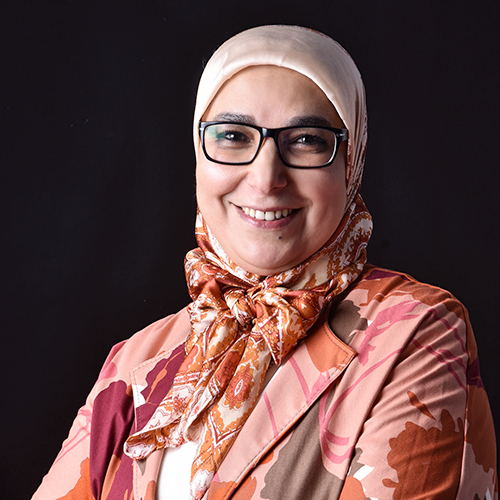
Physical Sciences
Morocco
Dr. Farida Fassi is a Professor of Mohammed V University in Rabat at the Faculty of Science. In 1996, after completing her BSc in physics from Abdelmalek Essaâd University in Morocco, she went to Spain to continue Higher Education. In 1999, she obtained her MSc from the University of Valencia in Spain. After MSc, she earned her Ph.D. In 2003, she awarded the European Ph.D. in particle physics in recognition of her contribution in the ATLAS experiment at CERN. She then granted with a post-doc from CSIC to continue working on the ATLAS experiment.
In 2007, she elected for an Advance Research fellowship offered by CNRS to work in the CMS experiment at “Institut de physique nucléaire de Lyon” (IPNL) and CCIN2P3 in France. She was the French´s Tier-1 contact person at CERN and research scientist at IPNL.
She worked through several research positions at CSIC and the Spanish Center for Particle, Astroparticle and Nuclear Physics. She contributed in the LHC experiments, ATLAS and CMS, that led to the major scientific discovery of the 21th century; the Higgs Boson.
Since 2013, she is the Distributed Analysis Support coordinator for the ATLAS experiment. She also has a pivotal role in the Exotic Top and Higgs physics working groups at the ATLAS collaboration. She is Linked Doctor at CSIC and visiting scientist at IFIC.
Her research interests lie generally at connecting theoretical particle physics with experimental results, focusing on the search for new phenomena and investigating the Dark Matter nature.
She is co-founder of the “African Strategy for Fundamental and Applied Physics”. Her aspiration is to set up the foundation and framework to ensure structured growth, learning culture and draw the participation of African Physicists in defining the most impactful physics priorities for Africa.
Medical & Health Sciences
Cameroon
Prof Joseph KAMGNO, 56 years old, is Medical Doctor from the University of Yaounde I, with a Diploma of Epidemiology from Pasteur Institute in Paris, a Master of Public Health and a PhD in Epidemiology from the University of Paris VI.
He is the Founding Director of the Center for Research on Filariasis and other Tropical Diseases (CRFilMT). He is also teaching epidemiology at the Faculty of Medicine and Biomedical Sciences at the University of Yaounde I where he is Head of Department of Public Health. He started his career at the Centre Pasteur of Cameroon where he worked until 2005 when he created the CRFilMT. Within the framework of this Research Centre, he has conducted as PI several large-scale research projects including descriptive epidemiological studies, clinical trials, public health program evaluations, development of diagnostic tools and clinical impact of some infectious diseases such as onchocerciasis, loiasis and lymphatic filariasis. Joseph KAMGNO is fellow of the Cameroon Academic of Sciences. He was awarded in 2015 the Islamic Development Bank Price for Sciences and Technology in recognition of his contribution at the socioeconomic development of his home country Cameroon. His main domains of research are onchocerciasis, loaisis, lymphatic filariasis (mapping, clinical trials, diagnostic tools, and post Mass Drug Administration impact evaluation). He has also done some work in the domain of epilepsy, malaria and Soil Transmitted helminths. He is author and co-authors of 120 publications in peer review journals, his H index is 31 in 2021.
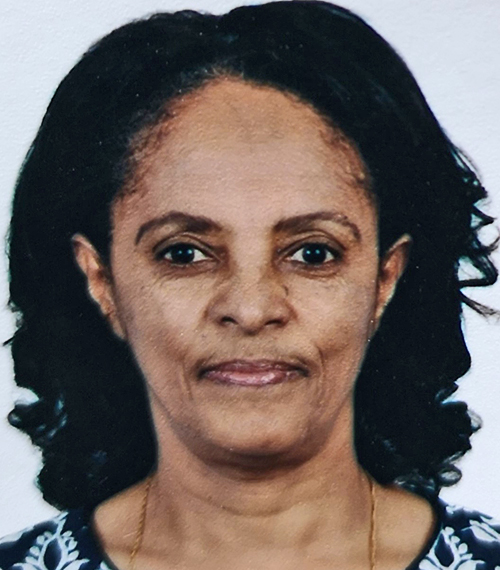
Biosciences
Ethiopia
Yalemtsehay Mekonnen is a Professor of Cell and Human Physiology. She is an academic staff in the Department of Biology at the College of Natural and Computational Sciences of the Addis Ababa University, Ethiopia. She has extensively published in different peer reviewed scientific journals on topics of respiratory physiology, medicinal plants and other related topics. She has advised many MSc and PhD students. In leadership positions she was involved and has initiated a number of national and international research networks and collaborations. She has also mentored young professionals specially women over the last three decades.
She was awarded research grants and fellowships nationally from Ethiopian Science and Technology Commission and Ethiopian Agricultural Research Organization and internationally from the British Council, the International Foundation for Science, Third World Academy of Sciences, the German Academic Exchange Service and the Alexander von Humboldt foundation. She had a number of short research stays in German universities namely; University of Heidelberg, Martin Luther University Halle, University of Kassel, University of Hohenheim, in England in London School of Hygiene and Tropical Medicine and in Great Ormond Street Hospital for Children NHS Trust and in Japan in Primate Research Institute in Inhyoma City. She has presented extensively her research results in national, regional and international scientific and professional meetings and conferences.
She received the 2015 the African Union Kwame Nkrumah Scientific Awards for high achievement for women in science. She has been appointed as Ambassador Scientist by Alexander von Humboldt Foundation of Germany as part of a worldwide network for excellence in science since 2016. She is elected as a fellow of The World Academy of Sciences (TWAS) as of January 2022.
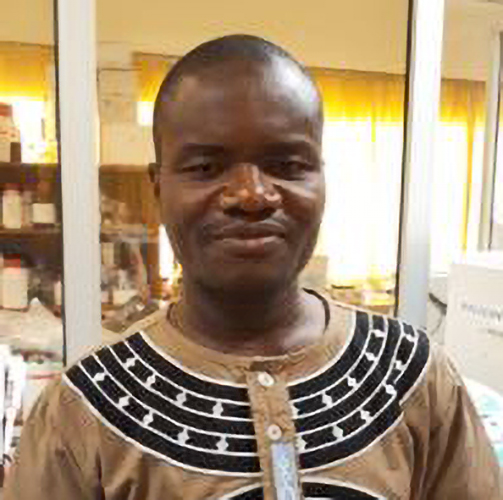
Medical & Health Sciences
Benin
Professor Luc Salako Djogbénou obtained a PhD in Medical Entomology and Parasitology from the University of Montpellier, France. He was a Post-doctoral fellow at the Liverpool School of Tropical Medicine (LSTM). He has been LSTM fellow staff since 2013. He is currently Professor, Director of the Regional Institute of Public Health of the University of Abomey-Calavi, Deputy Head of the Tropical Infectious Diseases Research Centre newly created by him. He was Director of the Laboratory of Vector-borne Infectious Diseases.
His research activities are related to the control of human vector-borne diseases such as Malaria, Lymphatic Filariasis, Dengue and the understanding of the biology, genetics and genomics of both pathogens and vectors. He worked intensively on the insensitive Acetylcholinesterase against organophosphates and carbamates in Anopheles gambiae in West Africa. These findings were relevant for implementing an indoors residual spraying strategy based on carbamates and organophosphates compounds used in several countries. He is also interested in how social practices relating to the pesticide used by populations in Africa impact sustainable control of diseases vectors. He is currently researching to determine the impact of the genetic profile of both vector and parasite on malaria transmission in endemic areas in Sub-Saharan.
He is currently the PI of a Public Health Intermediate Wellcome Trust grant. He is also the Co-PI for the Global Challenges Research Fund grant, the German Research Foundation grant, and three Bill & Melinda Gates Foundation grants. He previously held grants with the Wellcome Trust, IRD, WHO/TDR, IDRC, IAEA, ANR France, and the MIM.
He has helped train 3 Post-Doctoral scientists, 23 master and PhD students, and 11 students are currently under his supervision. The evolvement and success of young African scientists are very important to him.
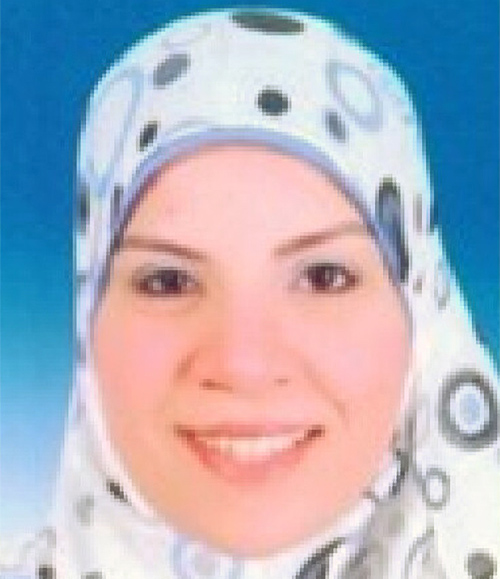
Chemical Sciences
Egypt
Prof. Amany Mohamed Fekry is a professor of physical chemistry, department of chemistry, Faculty of Science, Cairo University in 2017. I have more than 100 publications in different international journals, a review, 3 book chapters and 1 book. I Have attended 12 national and international conferences. My H-index is 33 with 2538 citations. I have supervised more than 20 MSC, Ph. D. students. I have reviewed more than 100 articles in different international journals. Stanford University identifies me in the top 2 % of Scientists worldwide in 2020 and 2021.
I have been awarded an international award called Obada-Prize for distinguished researchers – 2021 winners. I have been awarded University Encouraging Award (Basic Sciences), Cairo University, 2010; Country Encouraging Award (Basic Sciences), Egypt, 2012 and Academic Excellence Award (Basic Sciences), Cairo University, 2020. I have been granted STDF (Egypt - France cooperation) for a research stay in Electroanalytical group (ELAN) in the Laboratory of physical Chemistry and Microbiology for the environment (LCPME), Lorraine University, Nancy-France. I have got a postdoctor in GeoResources Lab, Lorraine university - France on experimental and theoretical studies on the flotation of oxidized minerals, Fine Future Project – GeoResources Department, Lorraine University, Nancy-France till now.
I’m a member of the Corrosion Association from 2005 to 2010, Polymers Association in 2018. I’m selected as a member on the Basic Sciences Council from the qualitative councils of the Academy of Scientific Research from 11 june 2018 to 10 June 2021 and I’m selected again for this membership at 29 september 2021. I’m a member of the NSP Scientific Academy (international): Ref. No. NSP-151134 at December 2020-2021. My research work contributes mainly to solving many biological and industrial problems. My main subject is to prepare advanced nanoparticles and nano-coatings; and their applications in different areas like Corrosion, Sensors, Fuel cells and catalysis. I know different techniques like Electrochemical Impedance spectroscopy, Potentiodynamic polarization, Cyclic Voltammetry, Scanning Electron Microscopy, Raman Spectroscopy etc.
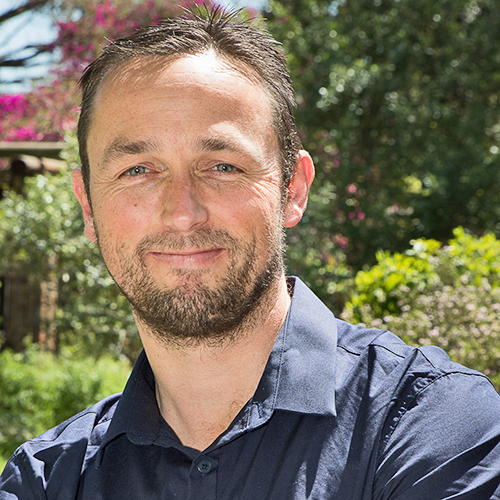
Physical Sciences
South Africa
Prof. Anton Du Plessis is applications scientist at Object Research Systems, Montreal, Canada (remotely). He is based in South Africa and as academic he also holds an Associate Professor position at Stellenbosch University, South Africa, with additional affiliations with Nelson Mandela University and Central University of Technology, South Africa. He is an experienced scholar in the fields of additive manufacturing and X-ray tomography, with specific interests in quality control and process optimization, lattice structures, new applications involving image analysis of tomographic images for all kinds of materials, and biomimicry especially for engineering design. He is deputy editor of the journal Additive Manufacturing Letters and acts on the editorial board and as editor on numerous other journals including Additive Manufacturing, Advanced Engineering Materials, Scientific Reports, Scientific African, 3D Printing and Additive Manufacturing, amongst others. He is on the scientific committee of numerous international conferences and organizations including the international association for computed tomography (IntACT). He supports researchers and students and collaborates widely in the above topics, with international collaborators in Norway, Italy, US, Canada and Australia, amongst others. He has published over 130 international journal papers and won numerous awards for this research. He is also a member of the Academy of Science of South Africa.
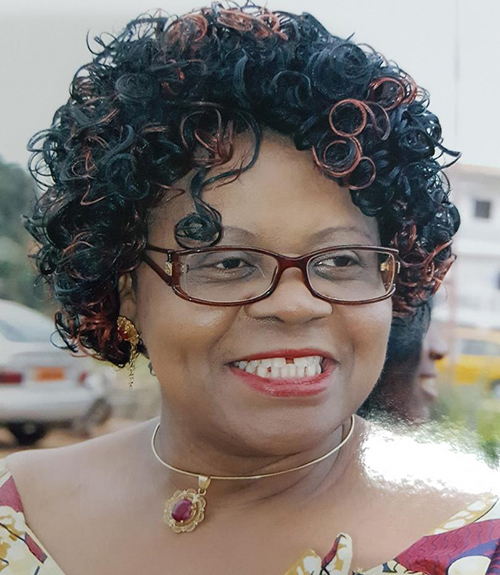
Medical & Health Sciences
Cameroon
Dora Ngum Shu Mbanya is Professor of Haematology at the Faculty of Medicine and Biomedical Sciences (FMBS), University of Yaoundé I (UYI), and the General Manager of the National Blood Transfusion Service in Cameroon. She is holder of an MD in General Medicine (Cameroon); PhD in Medicine/Haematology (Newcastle upon Tyne, England) and a “Dîplome Universitaire” in Transfusion Medicine (Université d’Abidjan, Côte d’Ivoire). She is Fellow of the Royal College of Pathologists, UK and the current President of the Africa Society for Blood Transfusion. She is member to several scientific and professional bodies locally and internationally, and has served as Vice Dean in charge of Studies and Student Affairs in the FMBS, UYI, and Dean of Medicine at the University of Bamenda, Cameroon.
The thrust of Professor Mbanya’s research has been in blood transfusion medicine (clinical use of blood; transfusion-transmissible infections (TTIs) like hepatitis B, C, Syphilis, and HIV. Her team, with external collaborators identified a new subgenotype of hepatitis B virus (A3), hepatitis delta and C strains. They identified the horizontal transmission of the group N, HIV-1 and an HIV-2 intergroup recombinant strain. They showed primary drug resistance in drug-naïve HIV-infected people, and demonstrated wide HIV-1 genetic diversity in Cameroon. These findings have contributed in the production of diagnostics assays for detecting diverse HIV strains in clinical specimens.
She also has interest in general haemostasis; her PhD established a reliable in vitro model for examining the role of endothelial cells in hypercoagulability. She created the haemophilia treatment centre in Yaoundé, revolutionising haemophilia care in Cameroon.
These research activities have led to 4 book chapters and 142 peer-reviewed journal publications, and to many international recognitions (Member of WHO Expert Advisory Panel on Blood Transfusion, and of several Working Parties of the International Society for Blood Transfusion) among many other nominations.
Pagination

Elected: